Travel: Wishlist / Global
Desire lines
From coffee in Tokyo to a grand New York bolthole, these places and objects are well worth the journey.
1.
morning glory
BC05, Braun
To keep us on time for our flights and checkouts, we’re turning to the bc05 by Braun, a quartz precision travel clock created by German designer Dietrich Lubs in 1995. This battery-powered, analogue alarm clock provides the essentials while you’re on the road and its protective lid is equipped with a world time chart to help you navigate across time zones. Paired with an otherwise monochrome palette, the red “off” and green “snooze” buttons foster intuitive use and are in keeping with the colour schemes of many other Braun products.

With its sleek silhouette and emphasis on functionality, the bc05 exemplifies the kind of utilitarian design that we have come to associate with Braun, pioneered by the German manufacturing company in the 1980s by industrial designer Dieter Rams. Our favourite detail? The quiet clock can leap into action with a crescendo alarm that gradually gets louder, ensuring that even the deepest of sleepers can be roused. Now, that’s what we call sound design.
2.
best caffeine fix
Nexpect Coffee, Tokyo
Barista-turned-businessman Kenji Kojima wanted to get back to doing what he loves best: making coffee. After helping Oslo-based Fuglen to set up in Tokyo, he recently opened Nexpect Coffee in a former newspaper shop on a quiet street in Kodenmacho in Nihonbashi. Customers order and pay on a screen by the counter, freeing baristas to focus on making great coffee.
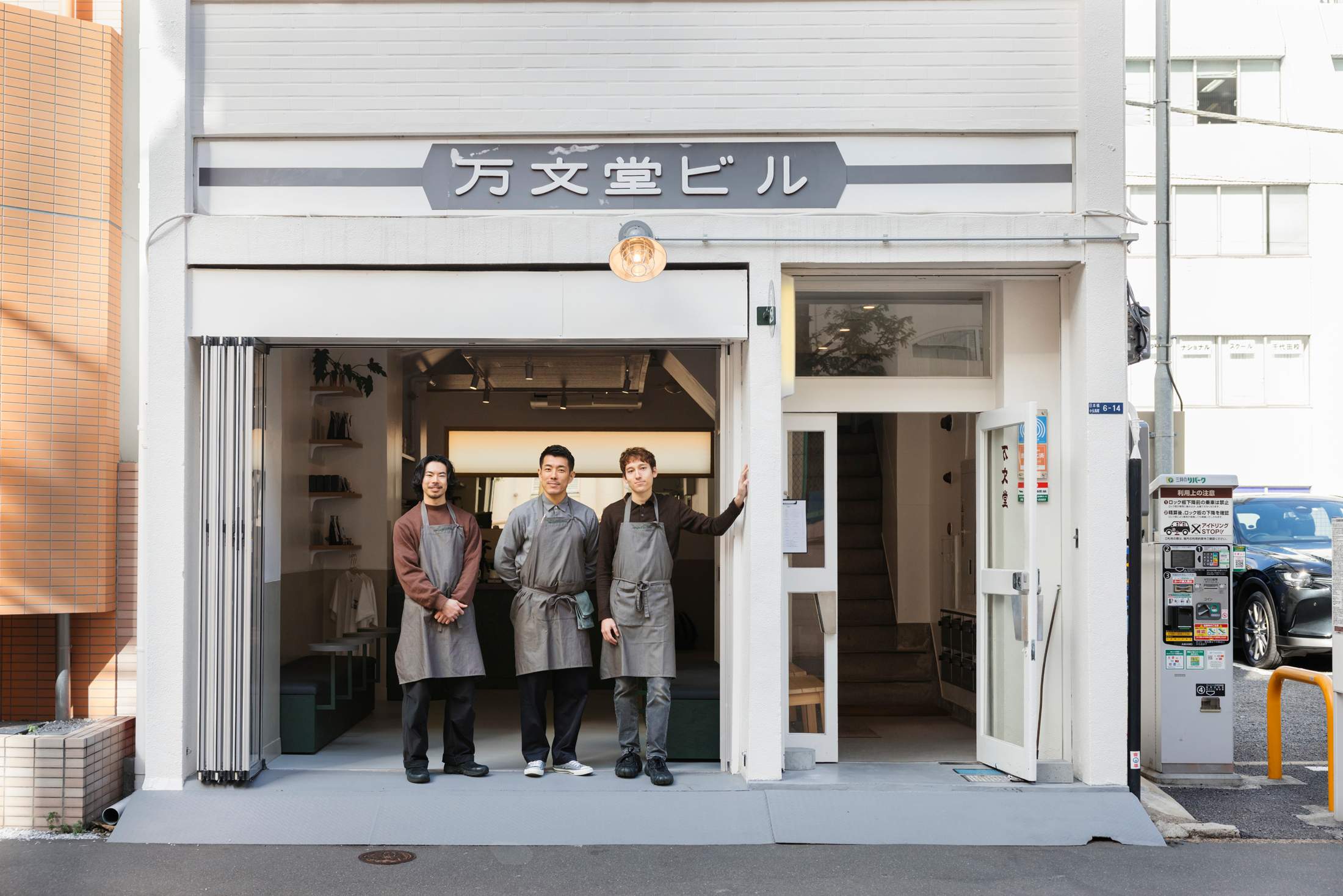
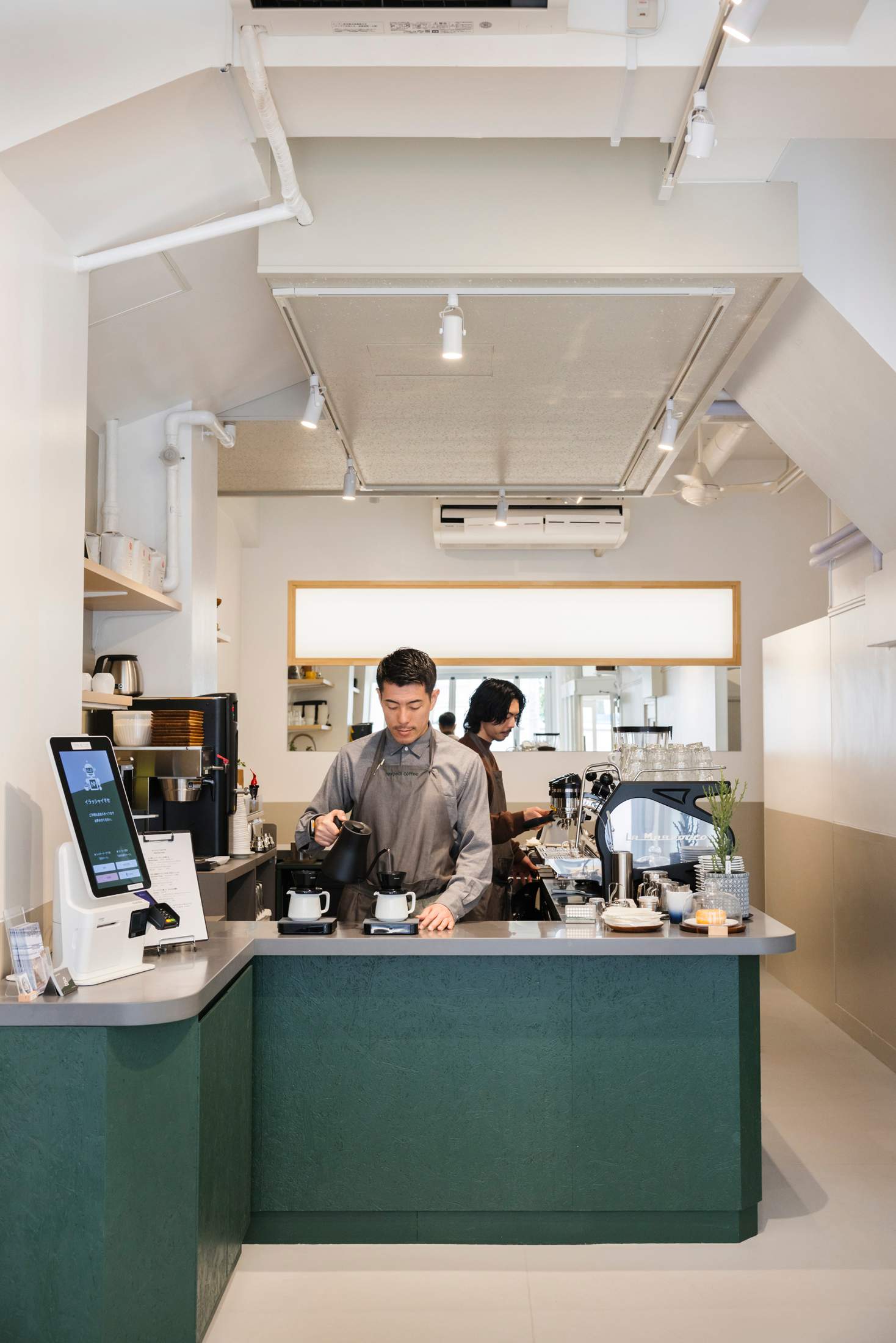

Nexpect even has its own robot mascot, Neku Yukun. “It’s good to be in a new place,” says Kojima, who has moved to the neighbourhood, which he finds a refreshing change from Shibuya. The area is warming up with new shops and restaurants, and many coffee pilgrims are making their way to see what Kojima, a renowned figure in the Tokyo bean scene, is up to. A roasting machine is on order and, if all goes well, this will be the first of several Nexpect coffee shops.
nexpect.theshop.jp
3.
mountain to climb
Steinach Townhouse, Merano, Italy
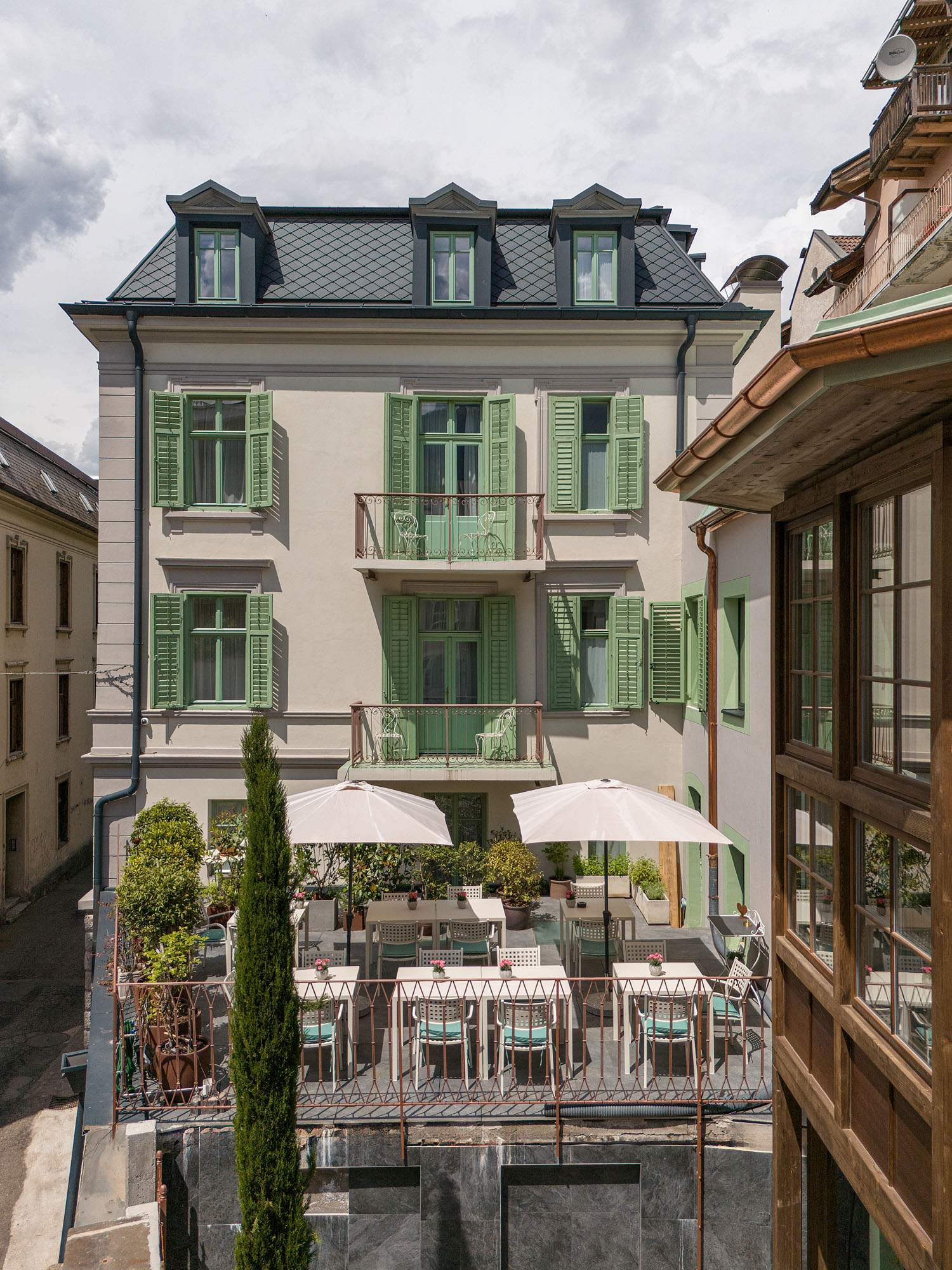
Set across two buildings in the Steinach neighbourhood of Merano’s historic centre, this hotel is just the right blend of old and new. The 17th-century building was tastefully restored by designer couple Roger Botti and Giulia de Andreis, with an understated colour scheme that includes pistachio-green window shutters.
Mid-century pieces such as Le Corbusier’s Marseille lamp are juxtaposed with flashes of Tyrolean culture, including contemporary art from local artists and hand-painted stencil work on traditional wooden furniture (for which South Tyrol is famed). With 11 spacious suites, each with its own bedroom and living room areas, this is the ideal escape from which to launch yourself into winter hikes – or to hit the slopes at the nearby Merano 2000 resort.
steinachmeran.com; theaficionados.com
4.
top thai table
Kaenkrung, Bangkok
This new spot in west Bangkok has a refreshingly offbeat take on Thai cuisine. Kaenkrung opened in October 2024 with a menu that draws on the flavours of Isan, Thailand’s northeastern province. The converted shophouse on the Thonburi side of the Chao Phraya river is the second restaurant by Paisarn Cheewinsiriwat and Kanyarat “Jib” Thanomseang. The two chefs have drawn crowds with their first site, Kaen, a culinary destination in Khon Kaen, one of the largest cities in Isan. At Kaenkrung, the pair bring their signature dishes and a playlist of funky, folky mor lam music to the capital (Krung thep is slang for Bangkok).
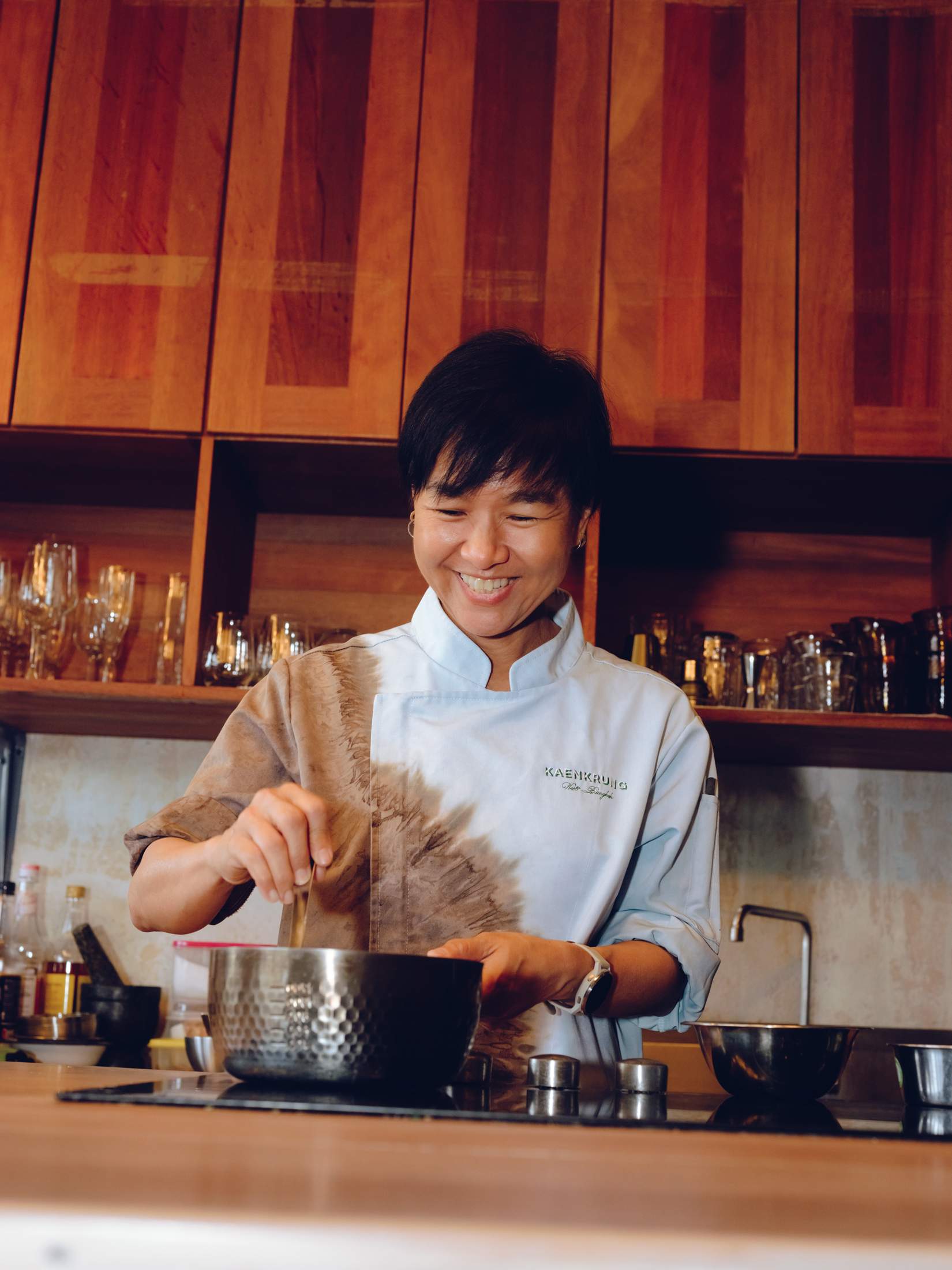
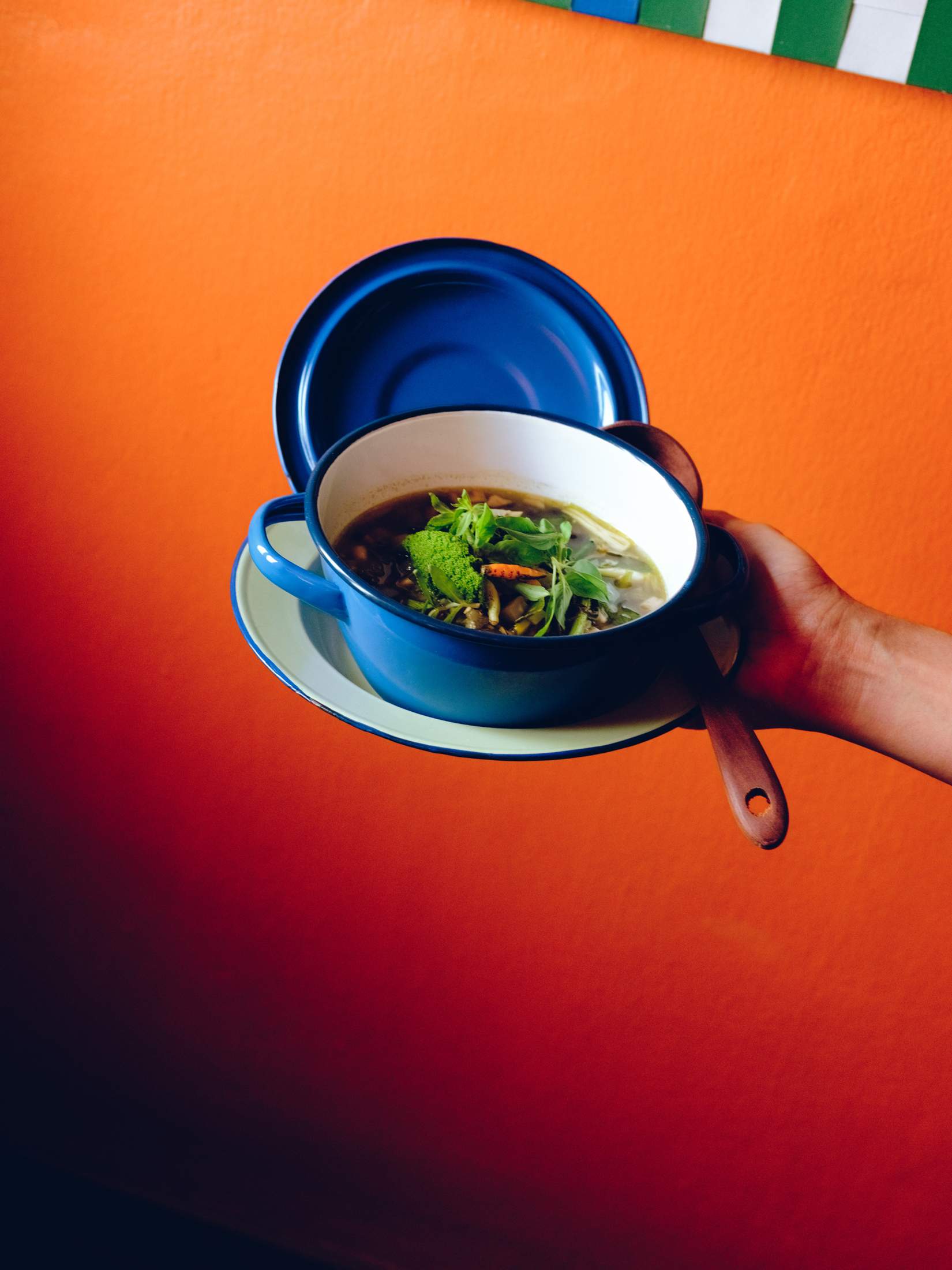
“We want to create contemporary regional cuisine that embraces local ingredients and traditional cooking techniques,” says Cheewinsiriwat, an Isan native and former executive chef at Chiva-Som health resort. Isan pork sausages are an easy entry point, before moving on to a creative twist on spicy green salad (som tam), made using jicama, a tropical root vegetable, instead of the usual papaya. The northeast is home to some of Thailand’s best beef, so the charcoal-grilled ribeye with vegetables and a sticky rice waffle is a must, even if it means giving the popular lamb massaman curry a miss.
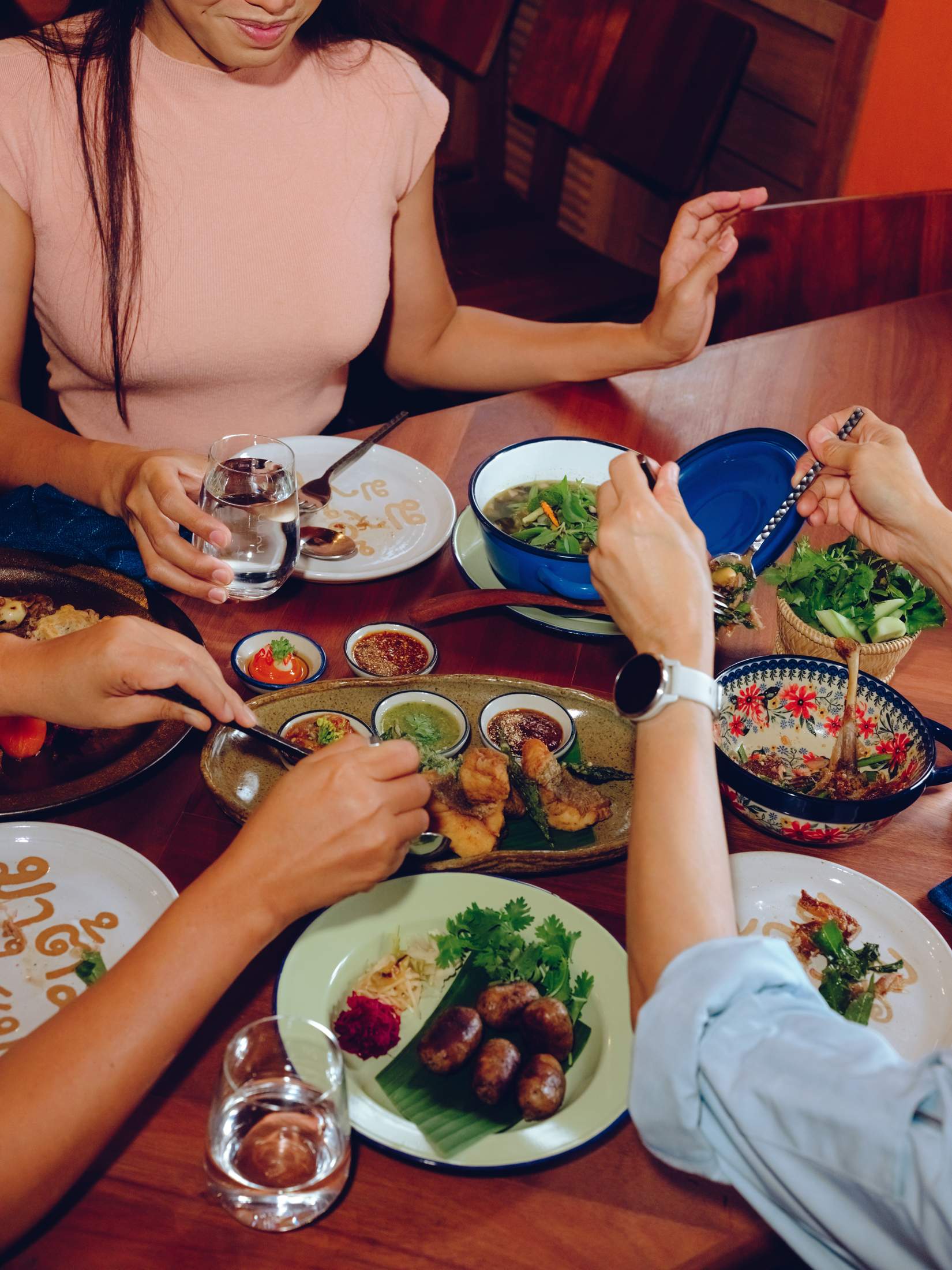
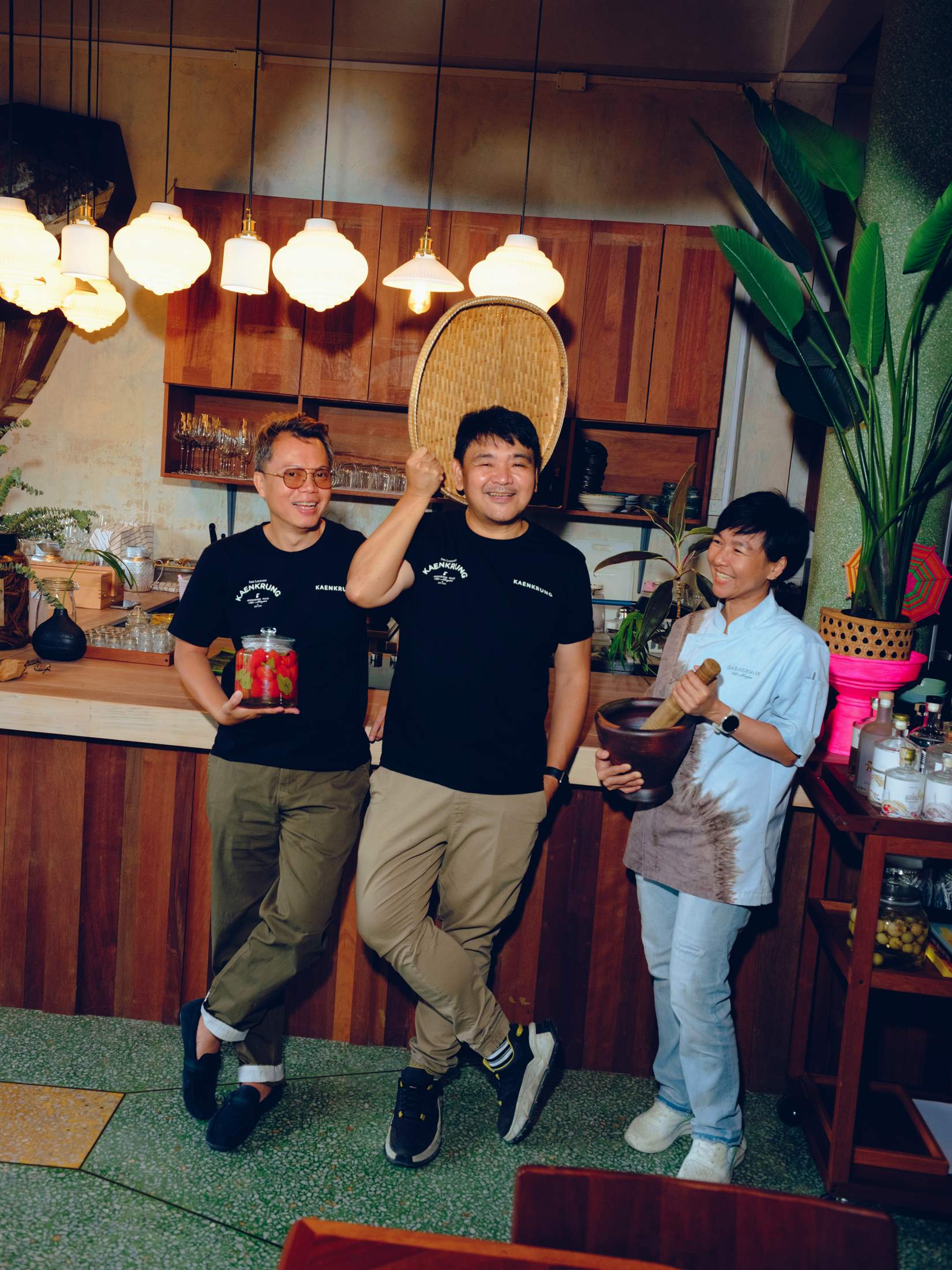
Kaenkrung comfortably seats 16 on the ground floor, while upstairs is reserved for private bookings, collaborations with guest chefs and other special events. “Isan culture is all about coming together,” says Cheewinsiriwat, who splits his time between his kitchens in Khon Kaen and Bangkok. As appreciation for Isan cuisine grows, a trip to Thailand’s little-known northeast might even be on next year’s wishlist.
+6 6 87 324 4619
5.
all-year escape
La Mission, Île d’Yeu
Île d’Yeu, a rugged Atlantic island off the coast of Vendée in France, offers plenty of options for holidaymakers during the summer but boltholes that stay open beyond the peak months are harder to find. “We love how the island evolves across the seasons and want to share that with our guests,” says Michel Delloye, co-founder of Hôteliers Impertinents. That’s why the group designed its newest opening, La Mission, to be one of the island’s few year-round destinations.
Located in the main village of Saint-Saveur, the property is as much a gathering place for islanders as a hotel. With a calendar of seasonal activities, from raclette dinners in the winter to pétanque competitions in the summer, the founders’ aim was to give a piece of local heritage back to the community.

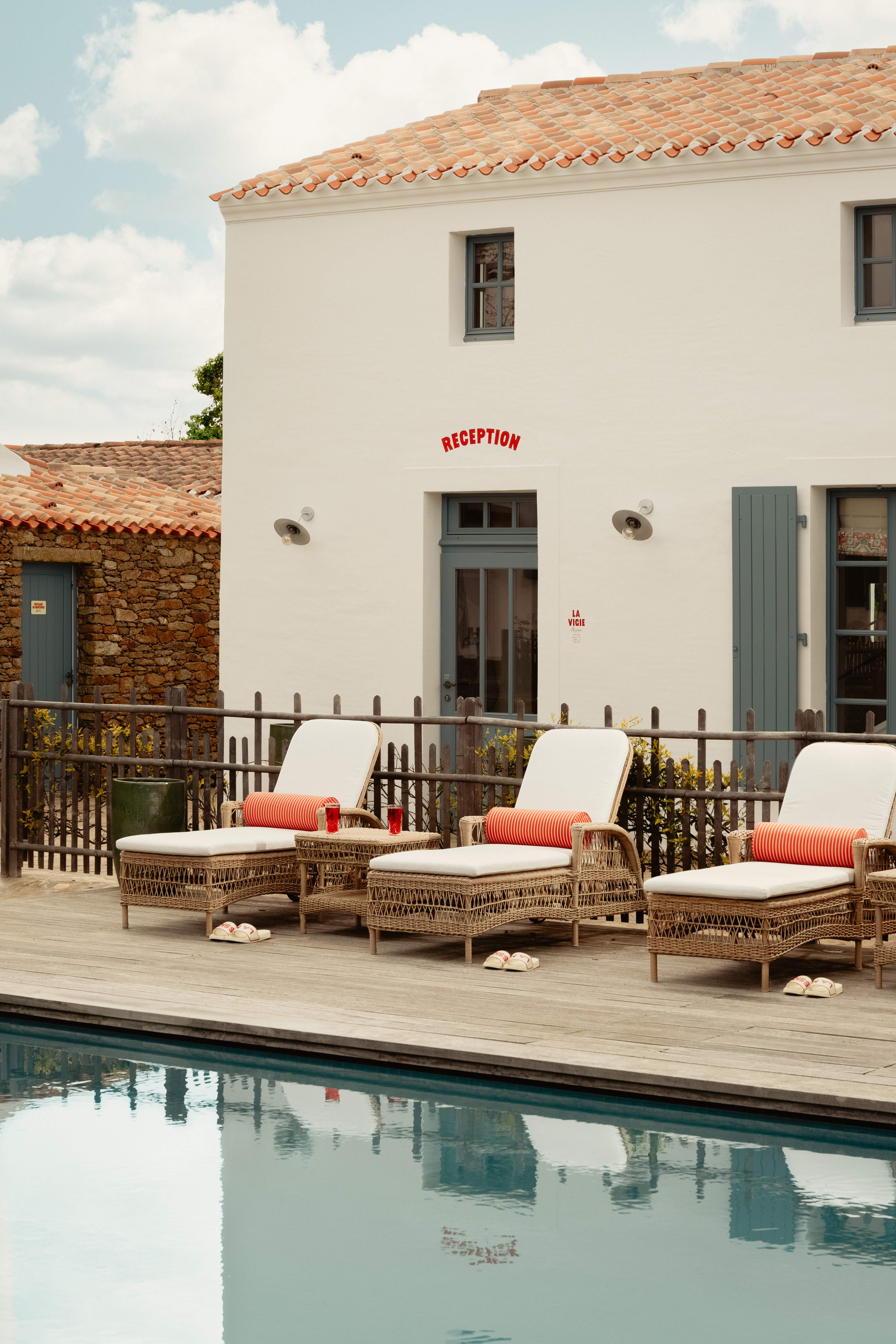
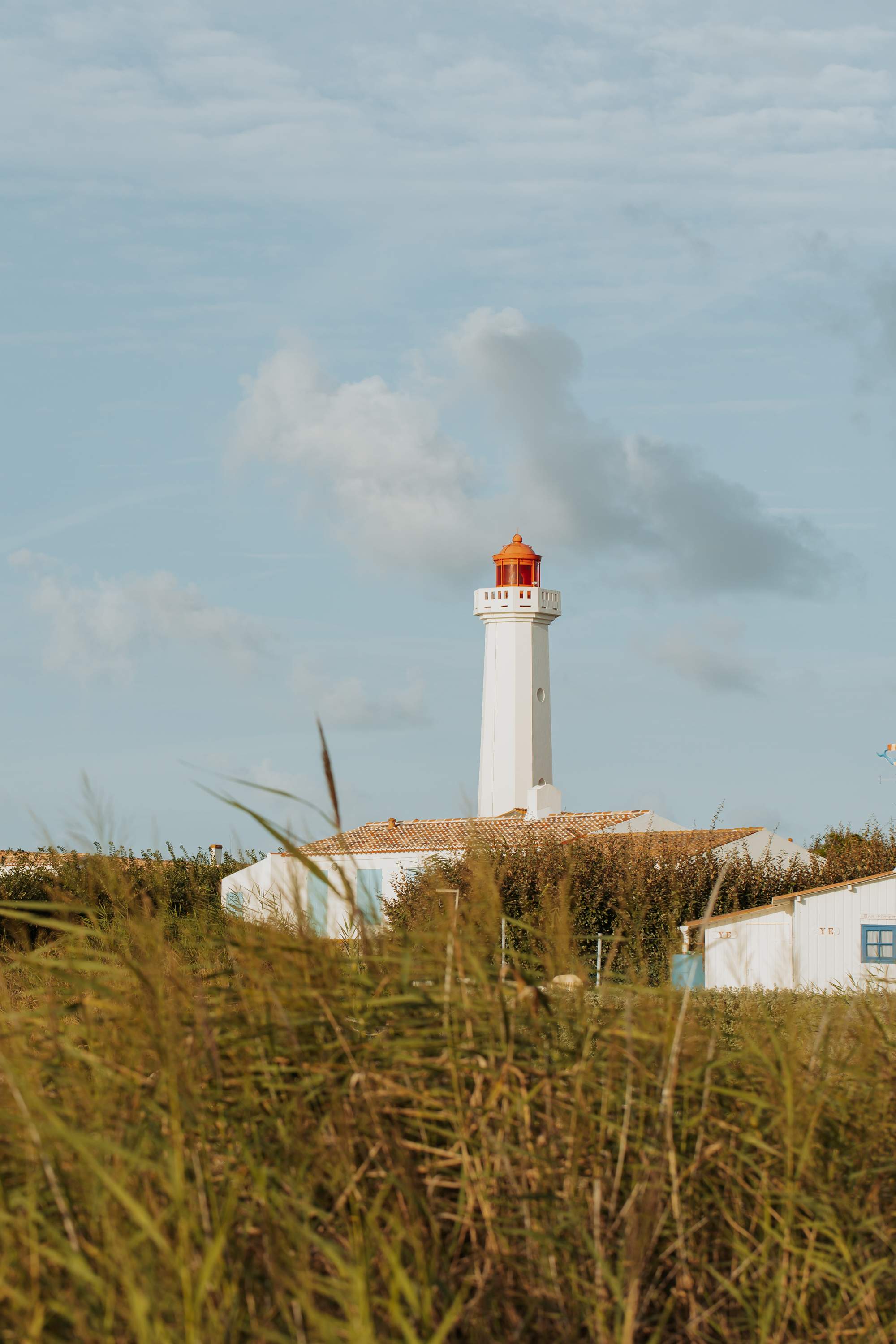
La Mission is set in one of the île’s most storied locations. Its main building dates back to the 19th century, when it was constructed under Napoléon iii as military barracks; it was later transformed into a school and a parish hall. “Some locals still have memories of going to school here,” says Delloye. “Others come in to reminisce about family gatherings at the hall.”
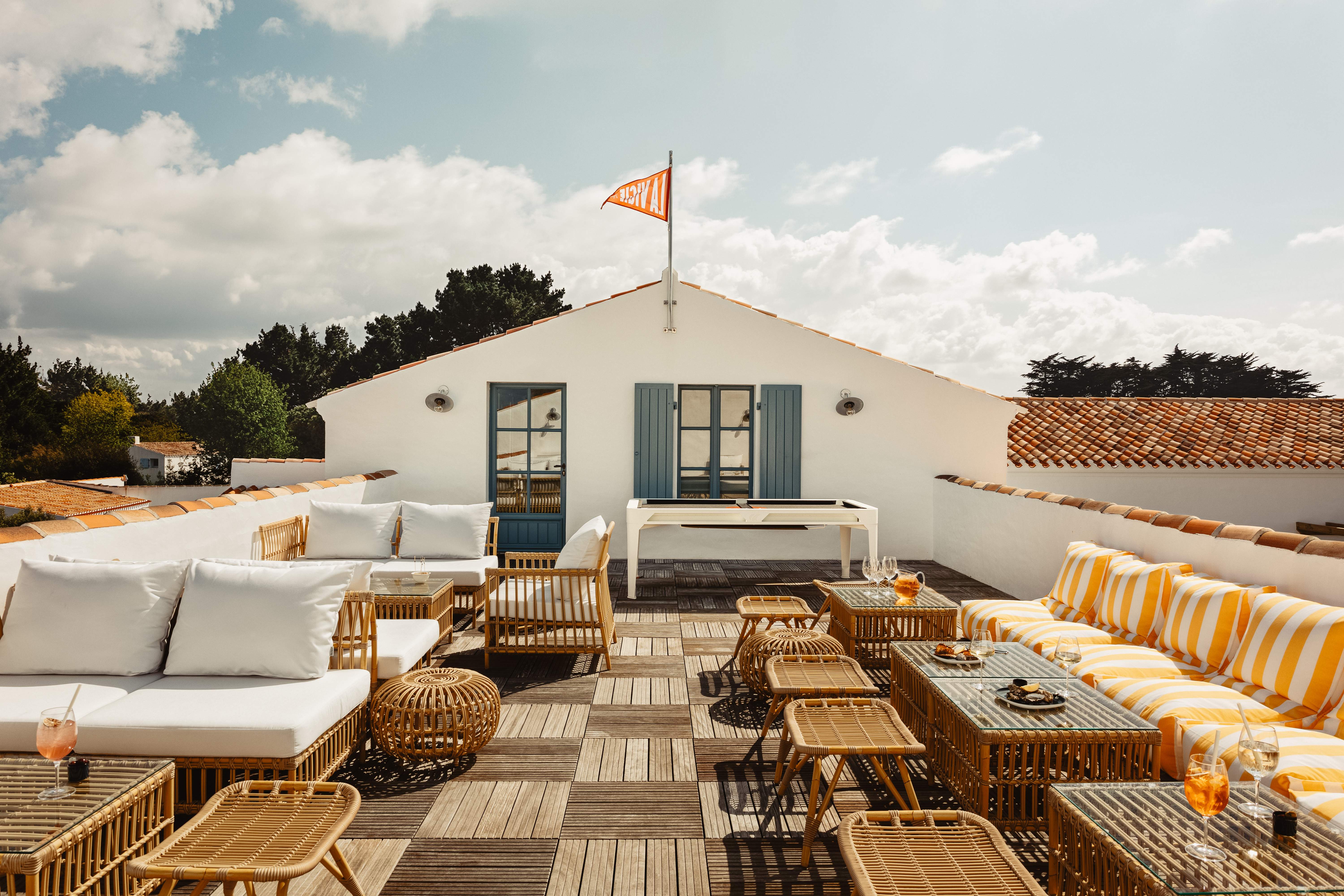
When it came to creating the hotel’s warm, convivial interiors, designer Pauline d’Hoop was mindful of staying true to the essence of the place. The 22 guest rooms and suites are decorated in the typical island style, featuring white wood-panelled walls, rattan furniture and splashes of colour. It’s the perfect retreat after a blustery island walk.
lamissionyeu.com
6.
island getaway
Somewhere Lombok, Lombok
The island of Lombok, just east of the more developed Bali, remains unjustly overlooked. Its beaches, paddy fields and forested slopes easily rival those of its better-known neighbour and there are fewer people to elbow out of the way to see them. With 20 standalone villas, a restaurant and bar, a spa and an infinity pool overlooking the ocean, Somewhere Lombok is the place from which to explore the island.
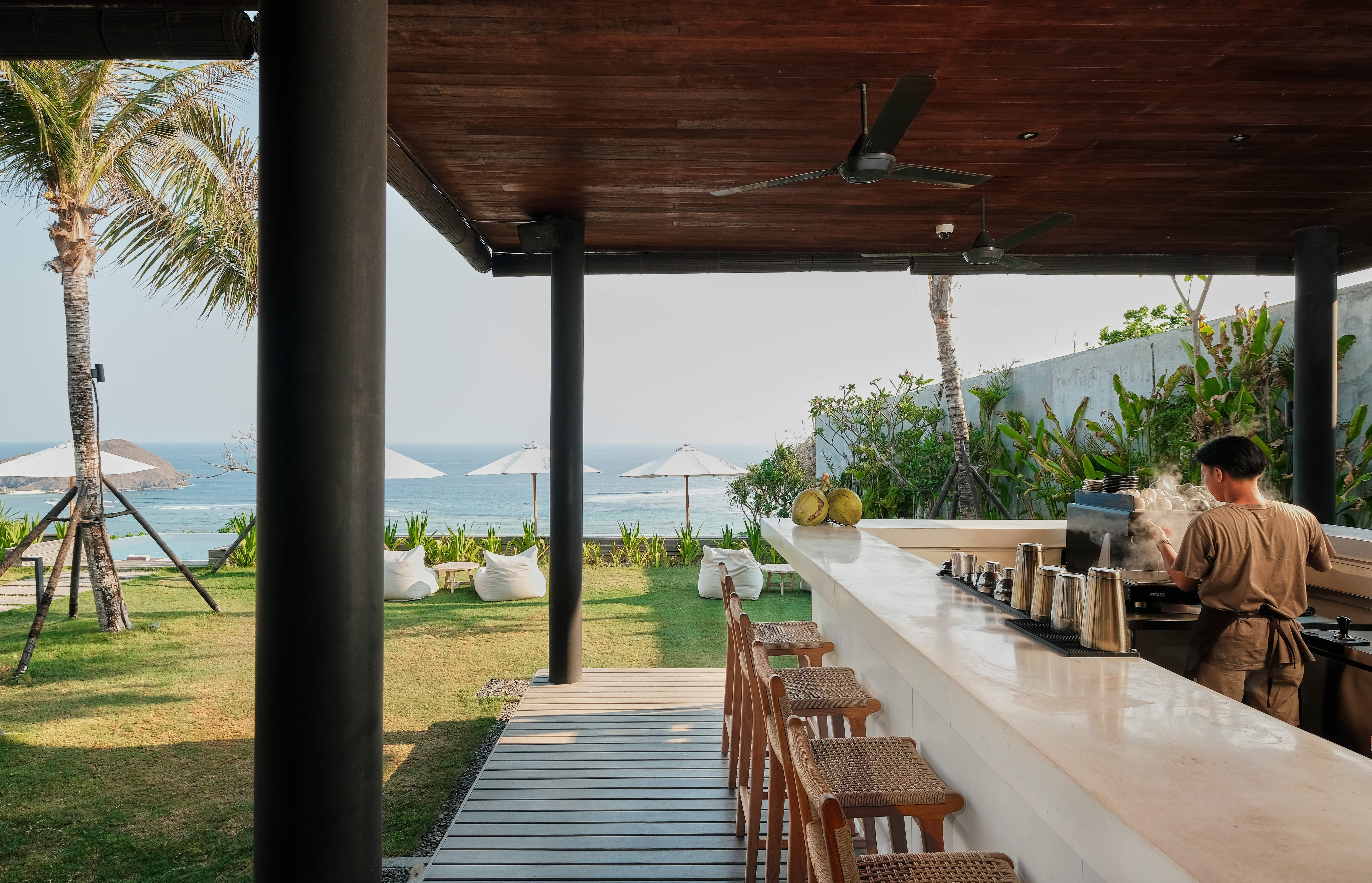
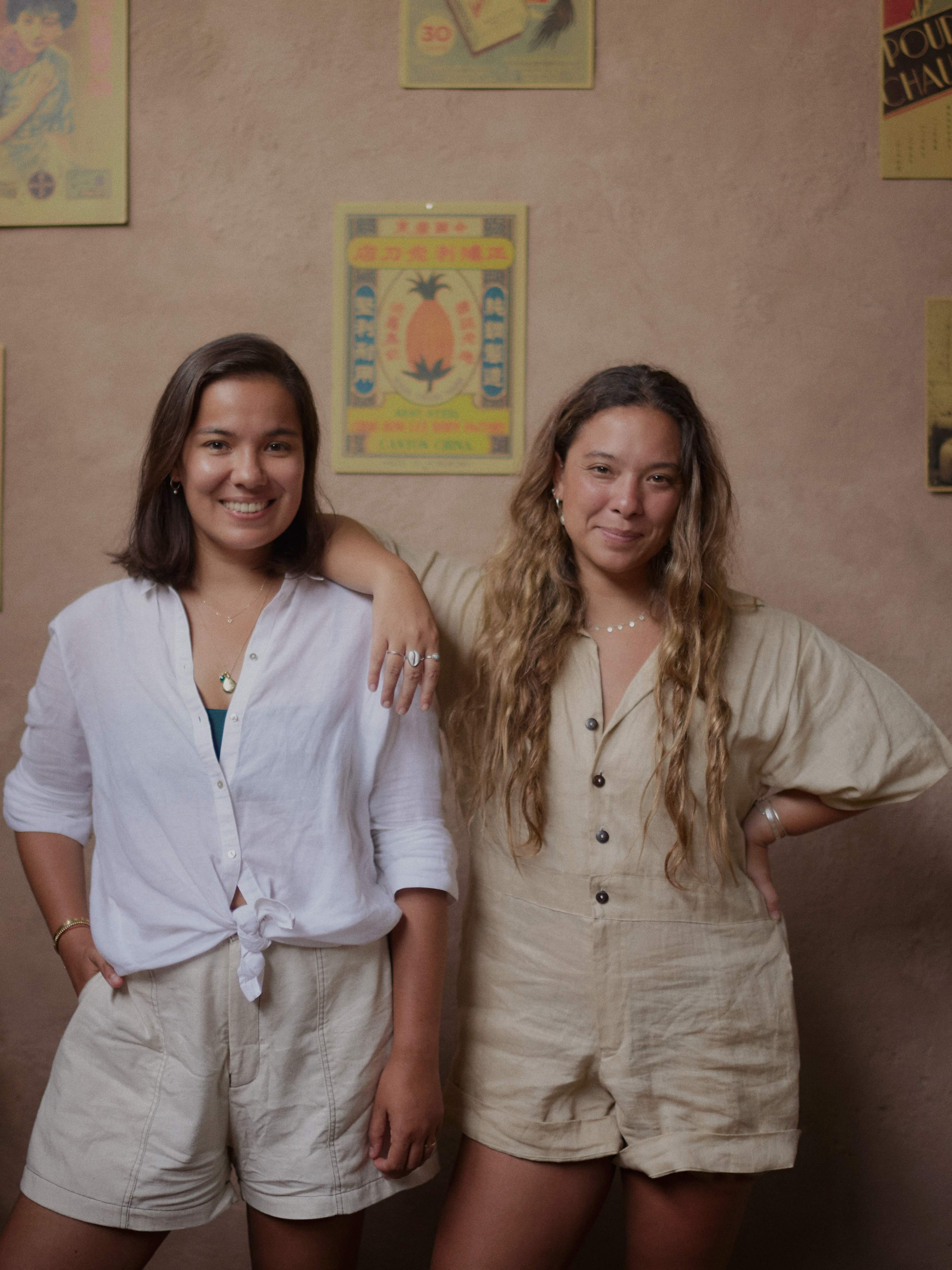
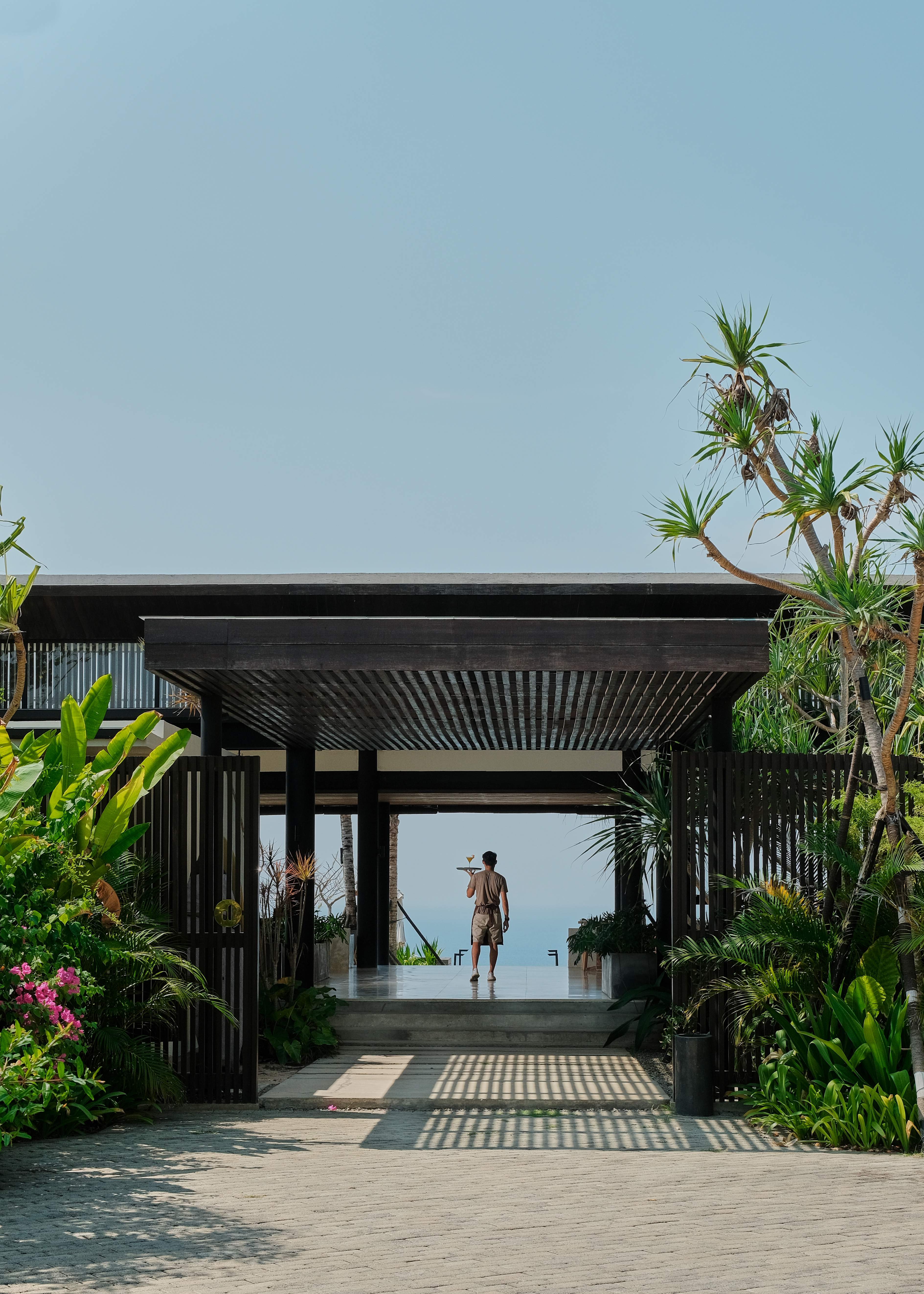
The villas are scattered across a cascading hill, allowing them valley views; each has its own terrace and private plunge pool. The open-air restaurant offers a mix of Indonesian and Western fare and features fresh seafood. “We wanted people to feel at one with nature, rather than being boxed in,” says Claire Gontard, who co-founded Somewhere Lombok with her sister, Valia. “We are lucky to have unobstructed views of the entire bay.”
somewherelombok.com
7.
down to a fine art
Clemente Bar, New York
Swiss chef Daniel Humm and Italian artist Francesco Clemente bonded over a shared love of New York, art and hospitality before opening their homage to all three, Clemente Bar, in October. The moody space – all wood panelling, wall sconces and striped banquettes – sits above Humm’s plant-based restaurant Eleven Madison Park. Its interiors come courtesy of Brad Cloepfil of Allied Works, with lighting by German artist Carsten Höller and furniture from Los Angeles-based designer Brett Robinson. The drinks menu is long and lively (be sure to sample the smooth, saffron-infused Clemente martini), while The Studio, a nine-seat counter, is available for 90-minute tasting menus.
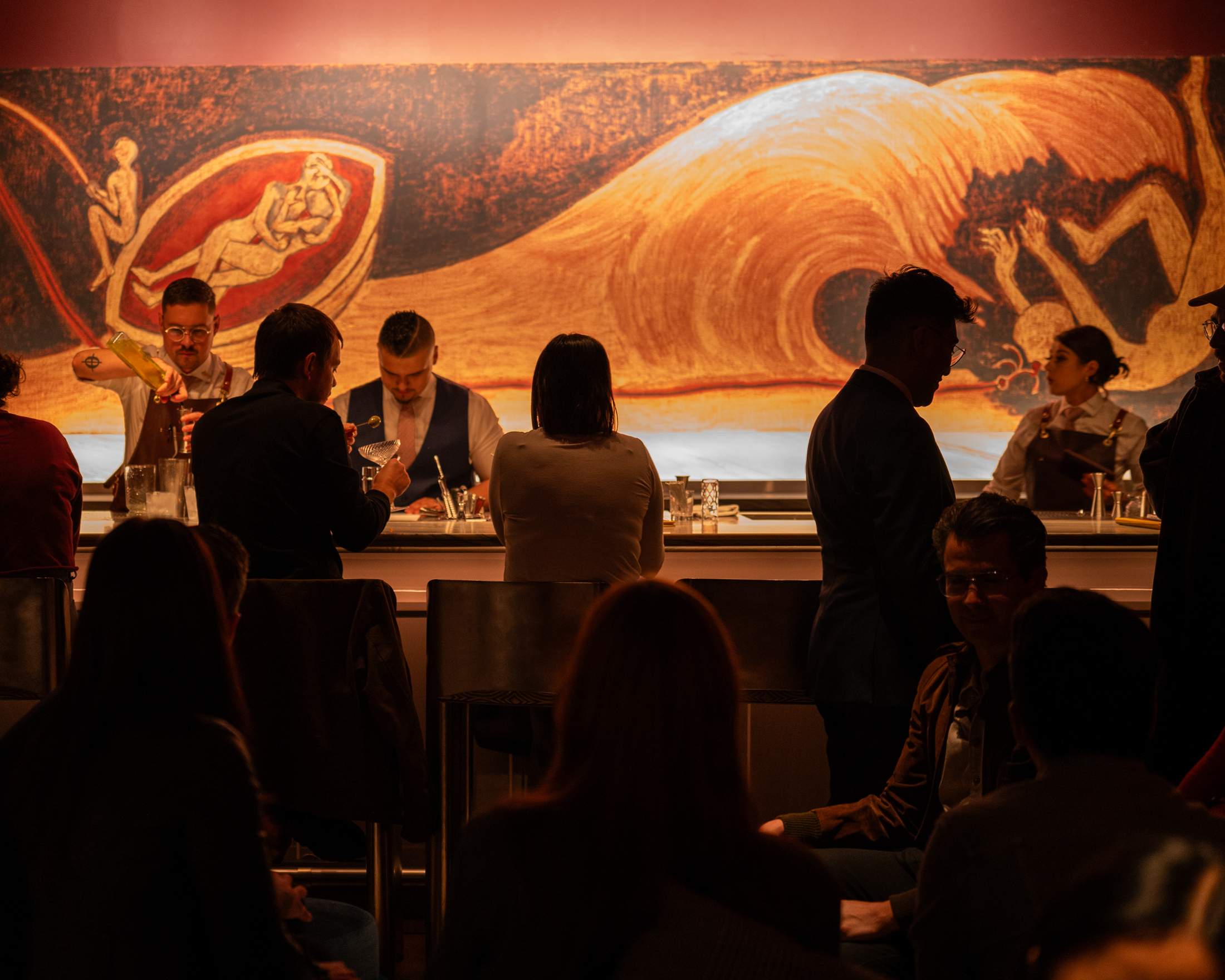

The drinks offering, overseen by Sebastian Tollius, and the chef’s counter are the main draws. The presence of Clemente’s custom-made neo-expressionist, ochre-hued friezes and evocative canvases, however, is the extra ingredient that nudges the bar from simply being notable to being a distinctive pleasure that should last the test of time. It’s amazing what a lick of paint can do.
clementebar.com
8.
the write stuff
Super Kiosk, Cambridge, New Zealand
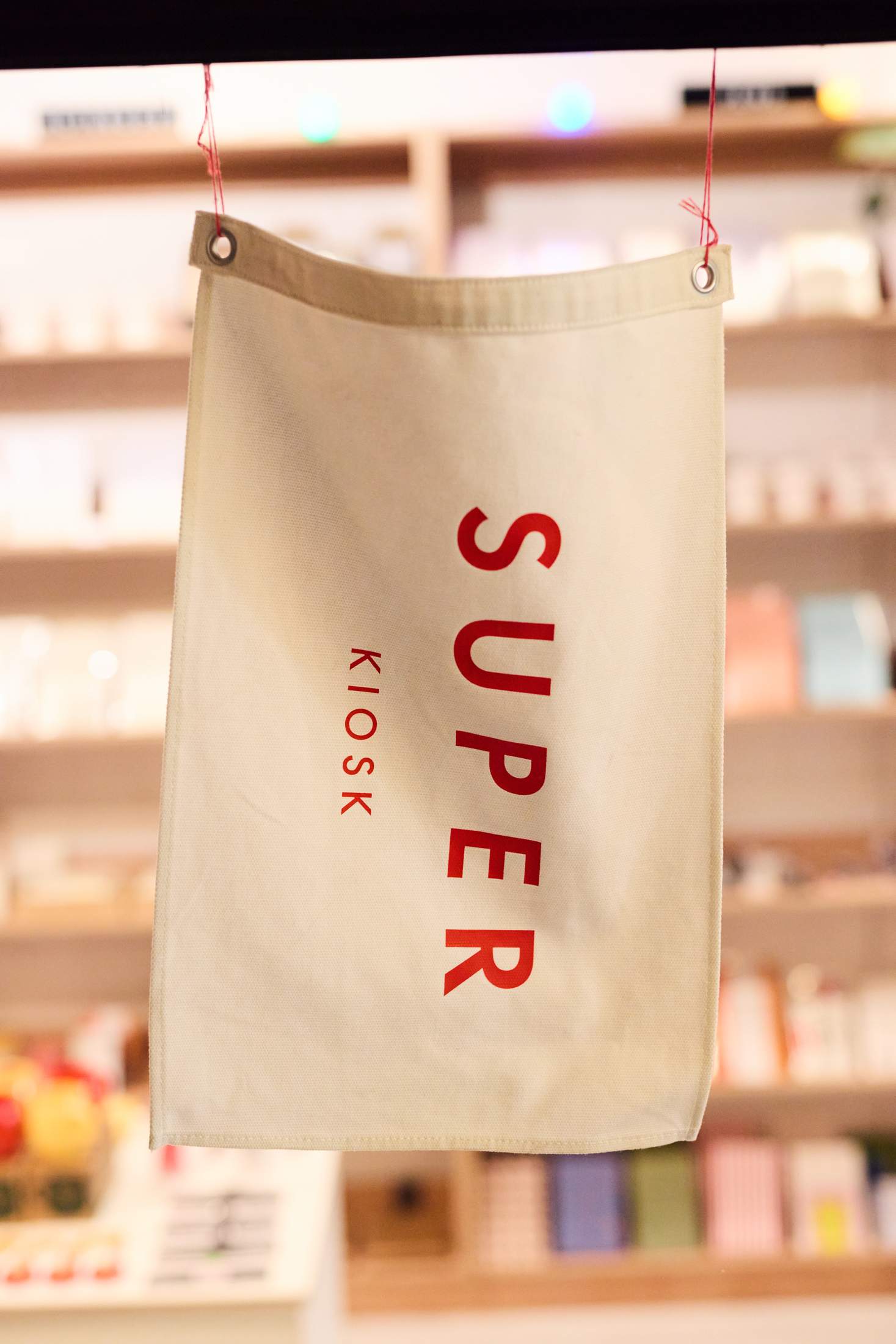
Tom Sykes was the head of digital brand strategy for the King James Group advertising agency in Cape Town when he started drafting plans to start something of his own. Having spent his career positioning big brands, he began wondering what it might be like to start something fresh after moving to New Zealand in 2018. “I had no clue what to do, never mind how to run my own business or what it would even be,” he tells monocle. “I started thinking about what I loved and what I hated. I love things that are elegant and enduring. So: stationery.”
This was the genesis of Super Kiosk, Sykes’s shop in Cambridge, a town about 150km south of Auckland. Today, wooden shelves are stacked high with well-made wonders and tidy tools from Australia, Japan, Germany and the US, including Delfonics ballpoint pens, steel Penco tape dispensers and notebooks from Any Day Now.
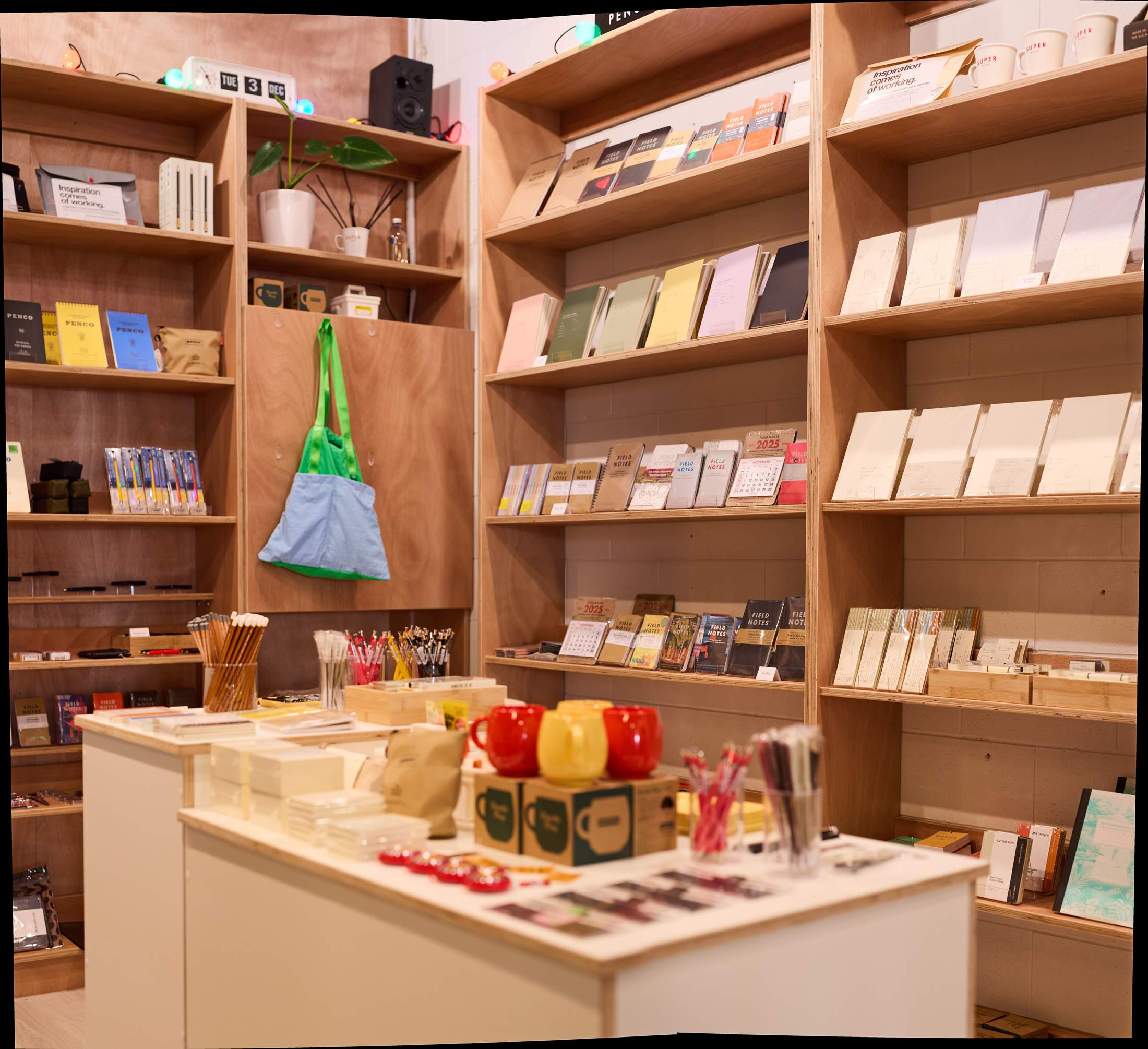
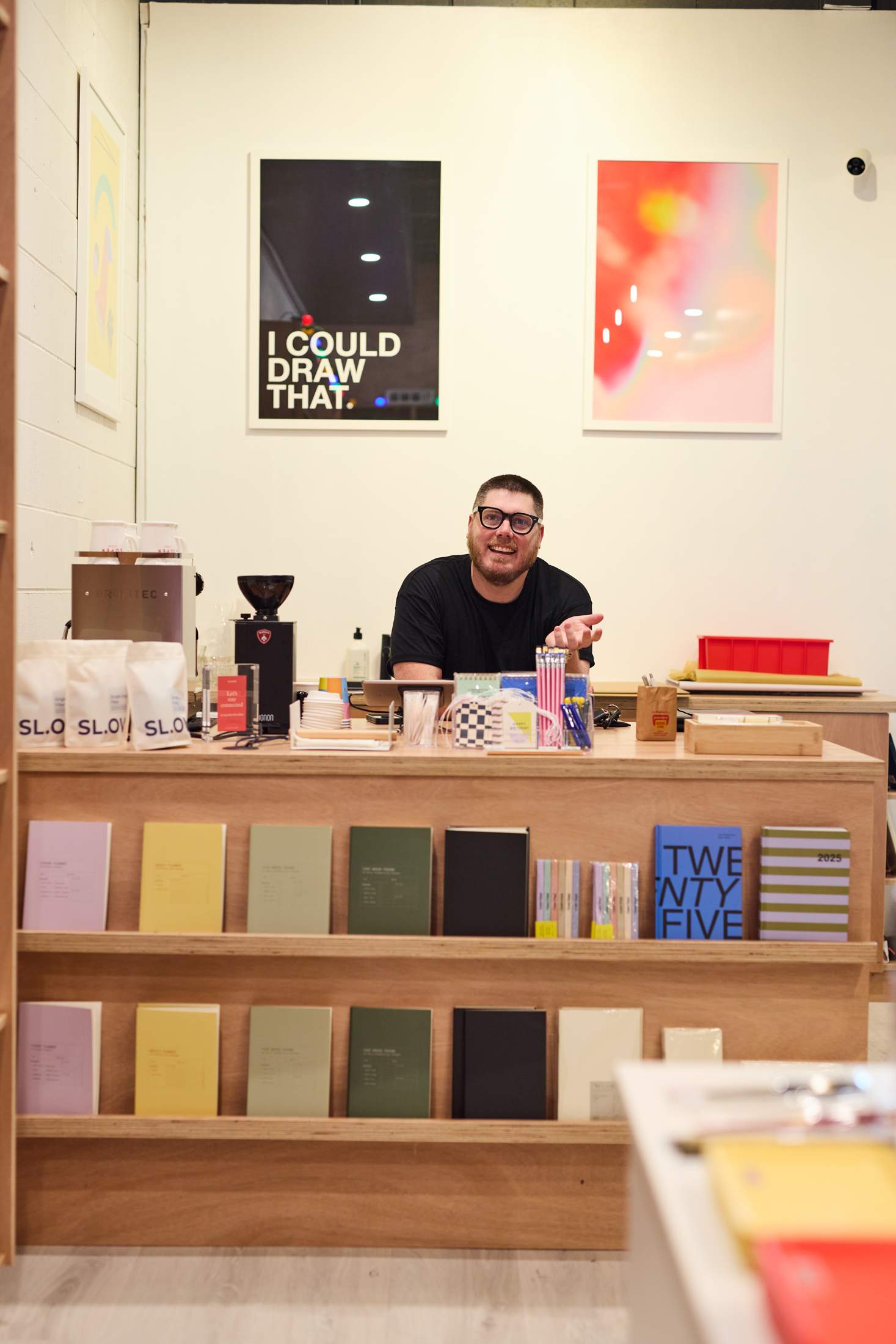
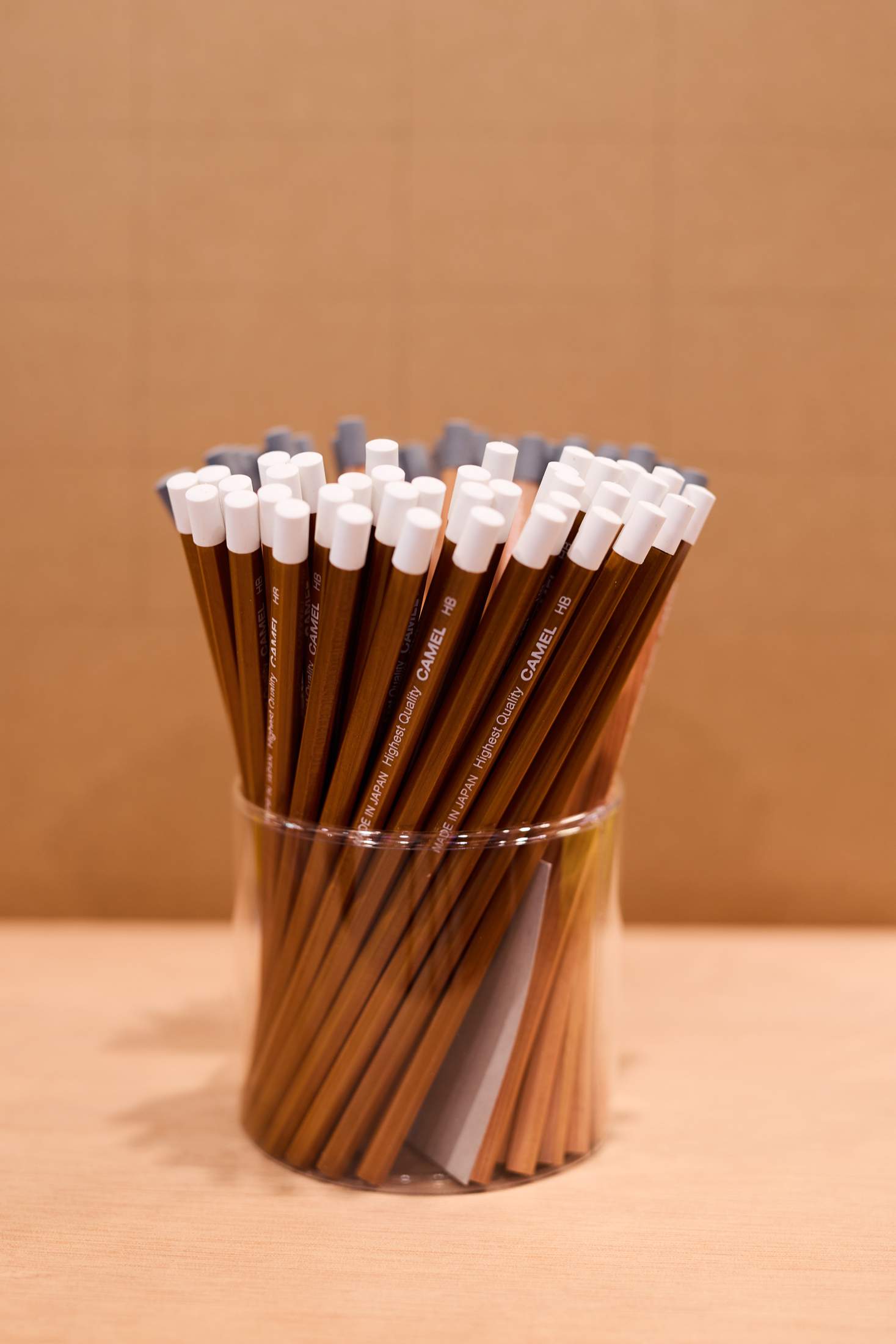
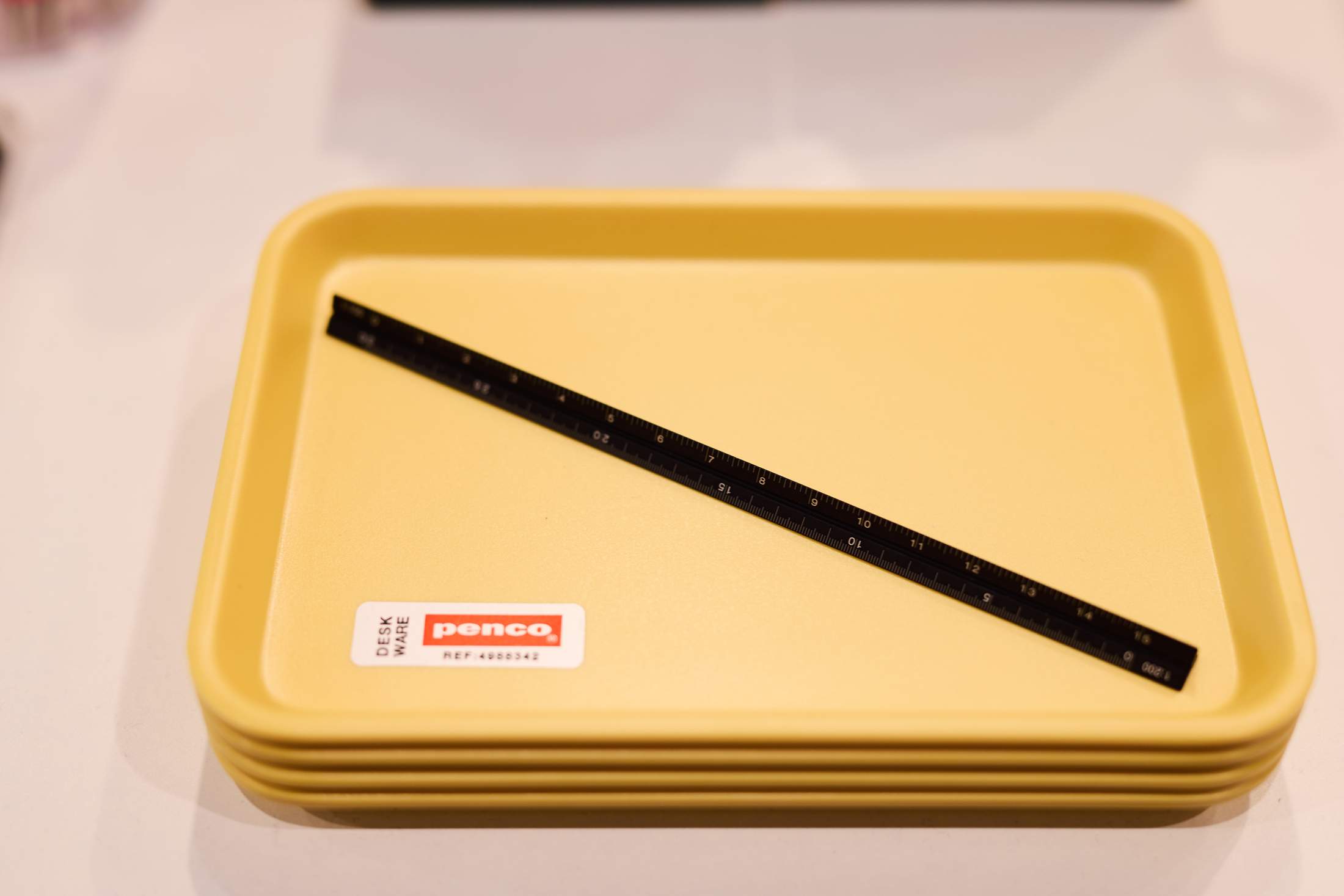
“It would have been much easier if I was a fifth-generation stationer and all of this was written in the stars,” adds Sykes, amused by the success of his just-so-branded business. “But that’s not my story. This is my story.” And a rather touching tale it is too.
superkiosk.online
9.
time for a dip
Ace Hotel & Swim Club, Athens
Ace Hotel has marked its return to Europe with Ace Hotel & Swim Club on the Athens Riviera. “This city is a perfect location, with its juxtaposition of ancient and contemporary influences,” says the company’s ceo, Brad Wilson. “Glyfada specifically is undergoing a renaissance, with a vibrant creative scene and exciting new developments.”
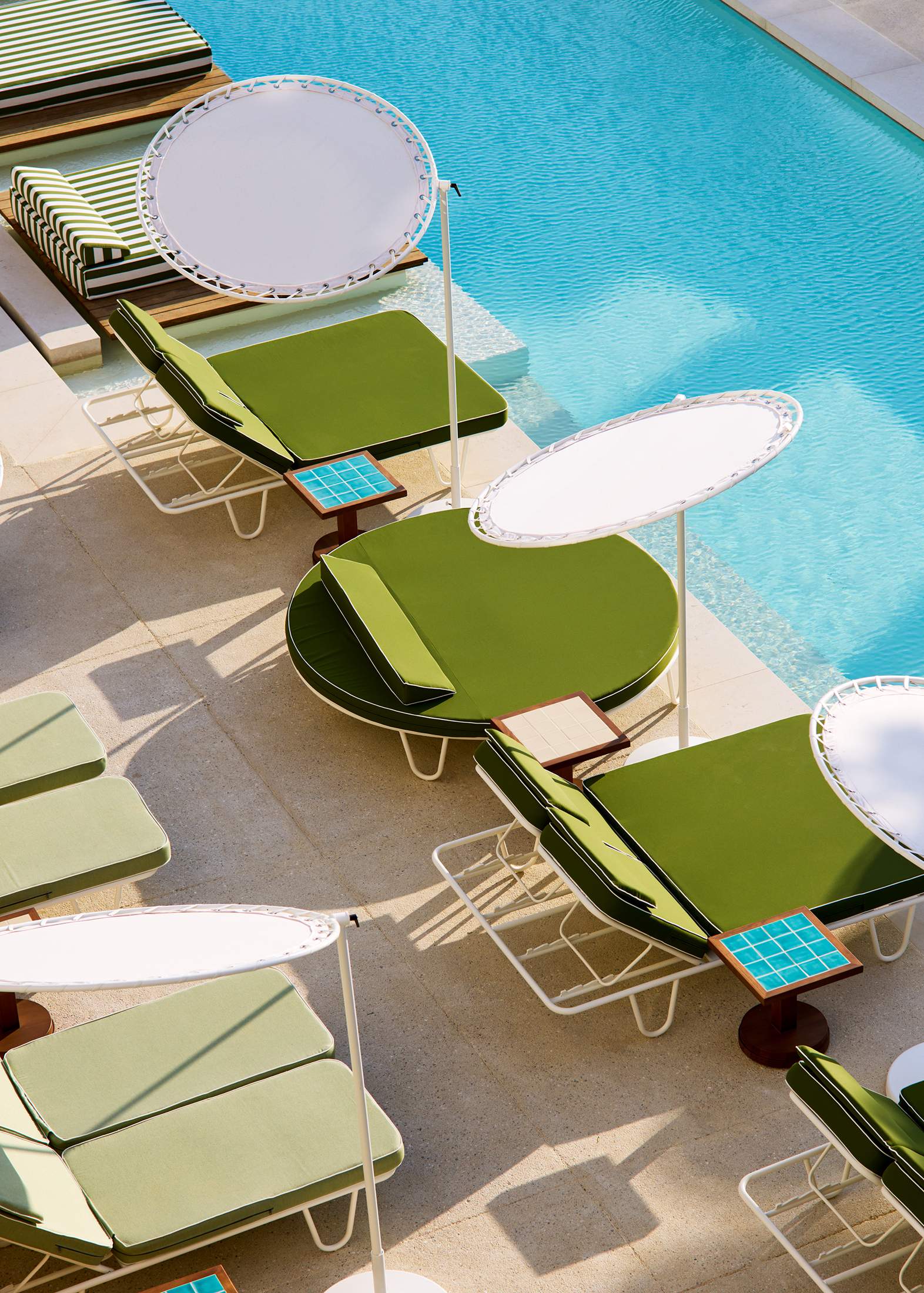
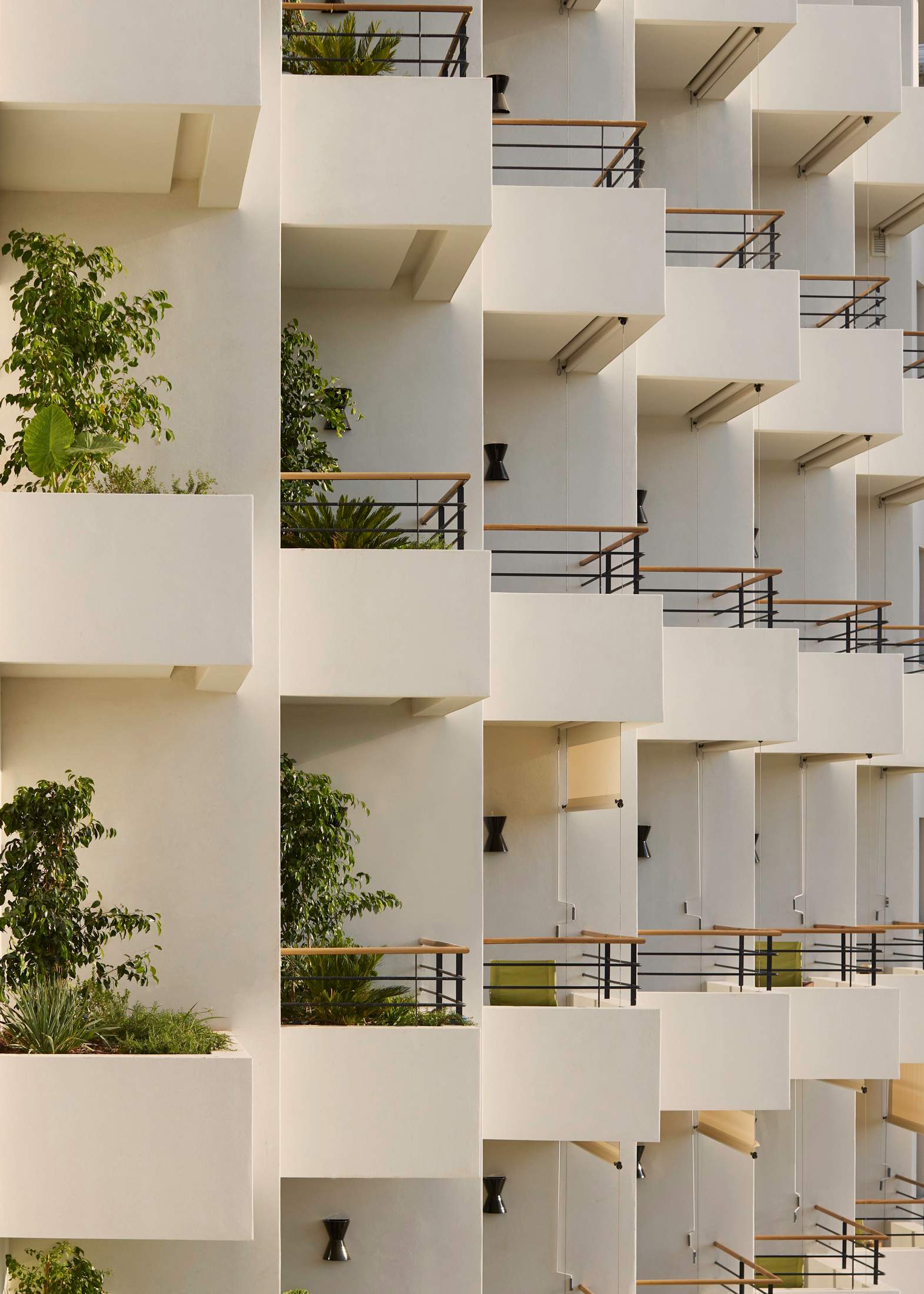
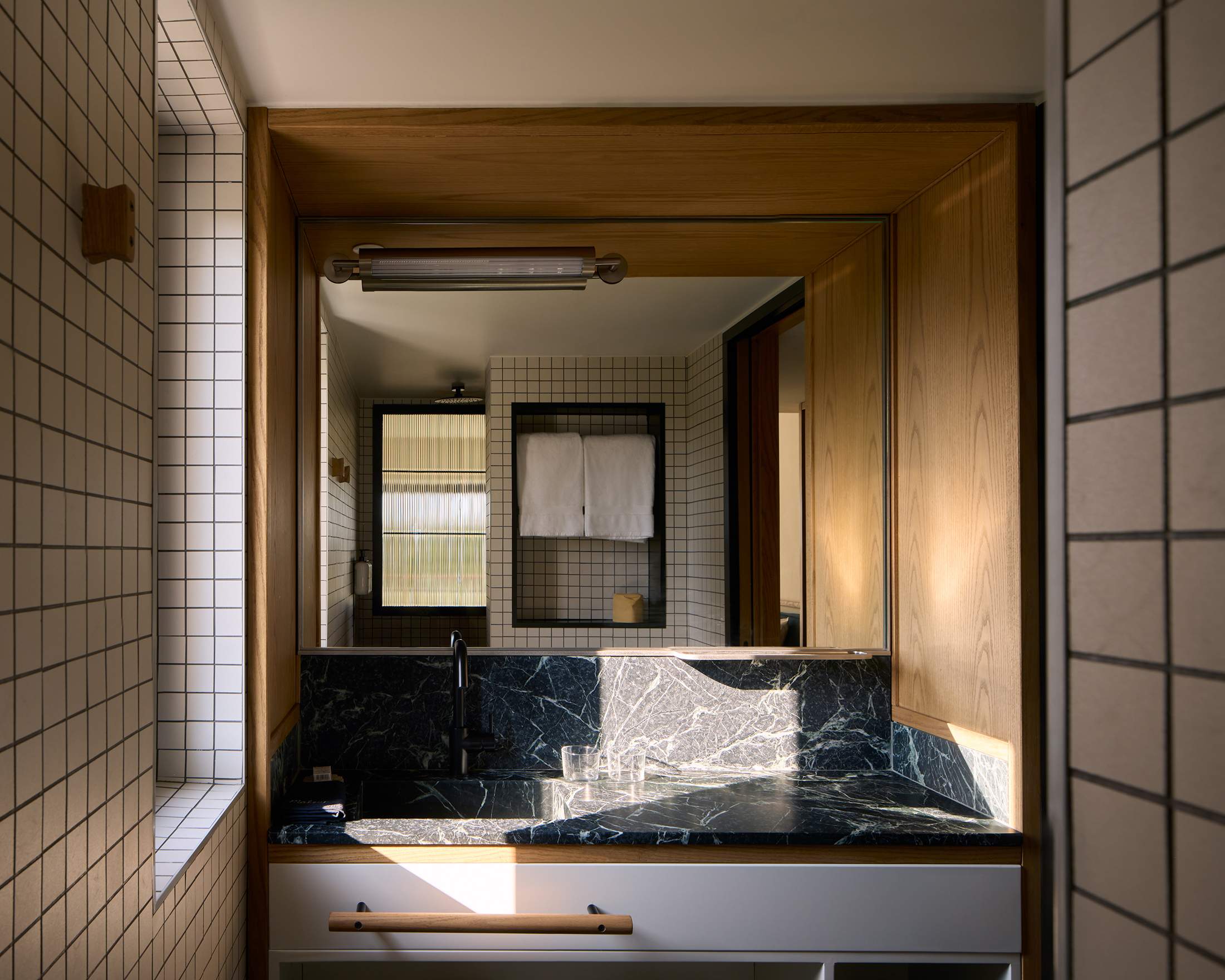
The 1970s building was reimagined by French firm Ciguë, with the support of Athens-based Georges Batzios Architects, to capture the breezy spirit of a modernist seaside resort. The pool area features green loungers and butter-and-cream-coloured umbrellas. Earthy-toned furnishings and natural materials sit inside with pieces by design icons such as Carlo Scarpa and Harvey Guzzini, selected by the owners of Athens-based vintage furniture shop Back to the Future. Works by emerging and established Greek artists were selected by Diplomates Studio’s founder, Matthieu Prat, and Aliki Lampropoulos, an advisor to the director of the Acropolis Museum. “A small gallery space at the hotel will feature rotating exhibitions,” says Wilson. “We’re focusing on work from collaborators and friends in the Athenian community.”
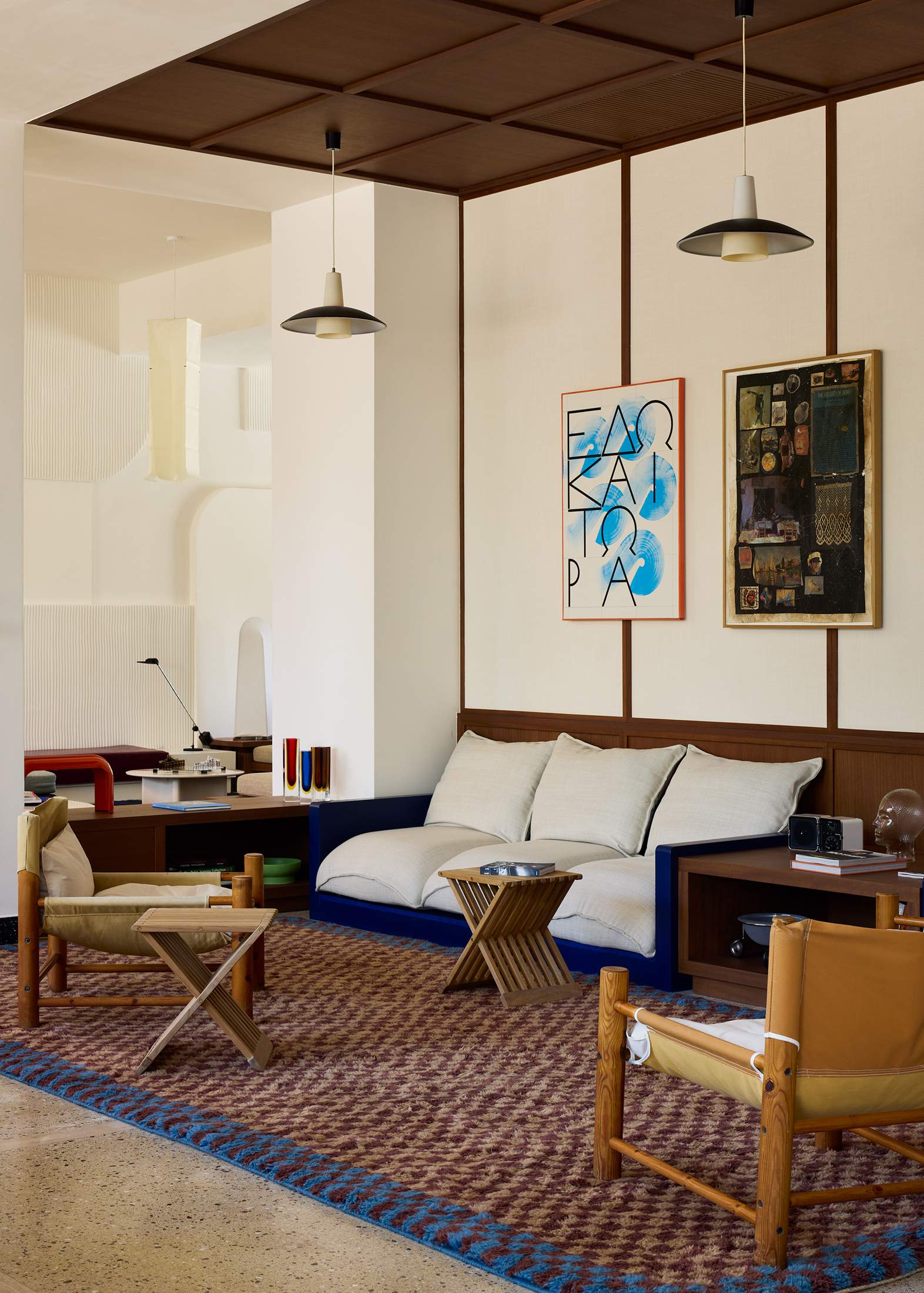
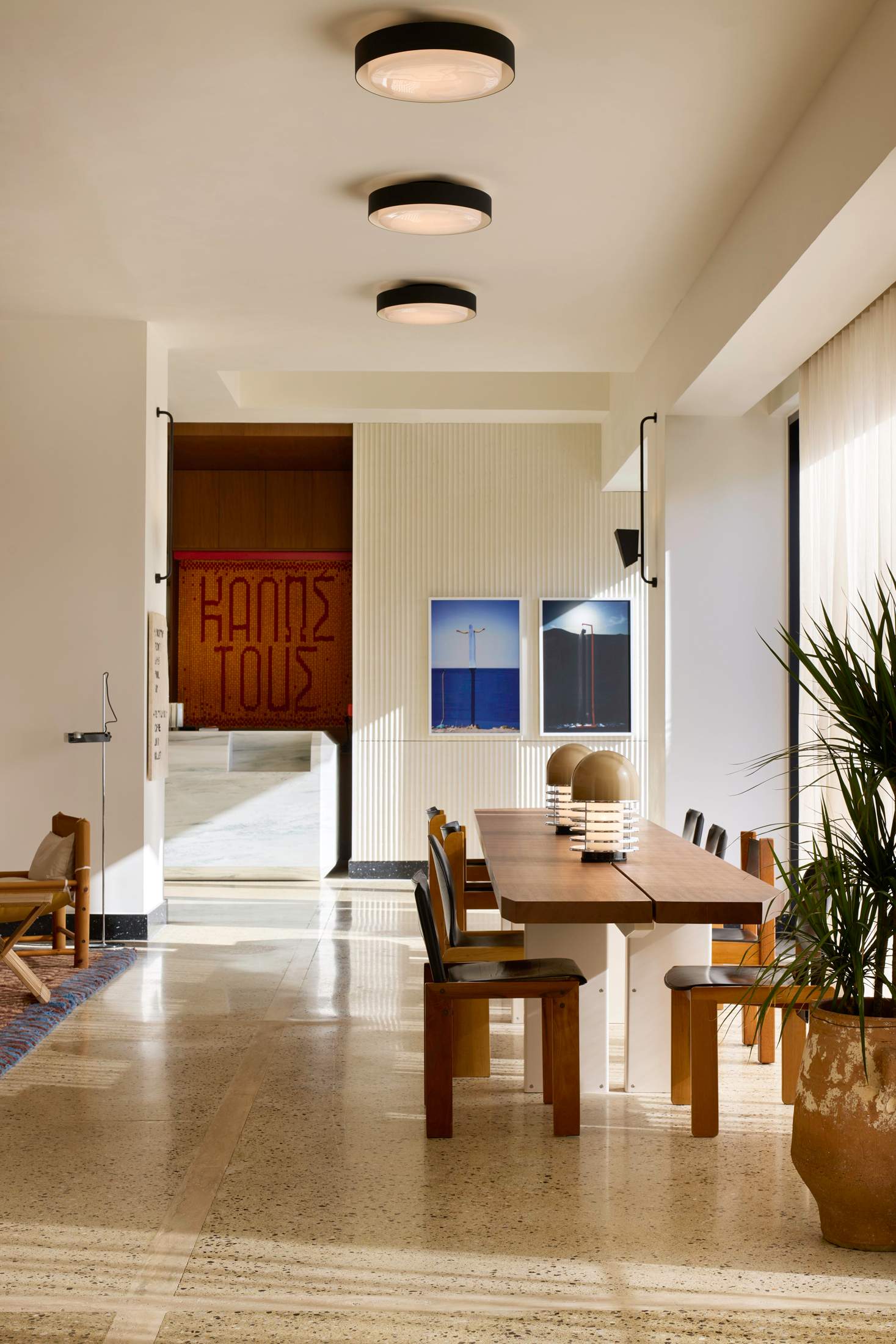
Sebastian restaurant serves modern Mediterranean fare. Try the Kástra Elión vodka, distilled from olives, for a fitting start to the weekend – then a few other options at The Lobby bar. The stools look sturdy enough.
acehotel.com
10.
suite dreams
Island Shangri-La, Hong Kong
Hong Kong’s Island Shangri-La hotel unveiled its revamped Shangri-La Suite in 2024. This 222 sq m home from home – the latest step in the 544-key hotel’s lengthy renovation – comes with his and her dressing rooms, a generous lounge, a 10-seater dining table, a kitchen, a wine cellar and a freestanding bar. Kuok Hui-kwong, the executive director and chairwoman of Shangri-La Group, had a hand in the design, elevating French designer Tristan Auer’s vision with Chinese opulence and a few deft touches. The hand-painted murals and oversized marble bathtub overlooking Victoria Harbour provide a sense of permanence (not to mention a great soak).
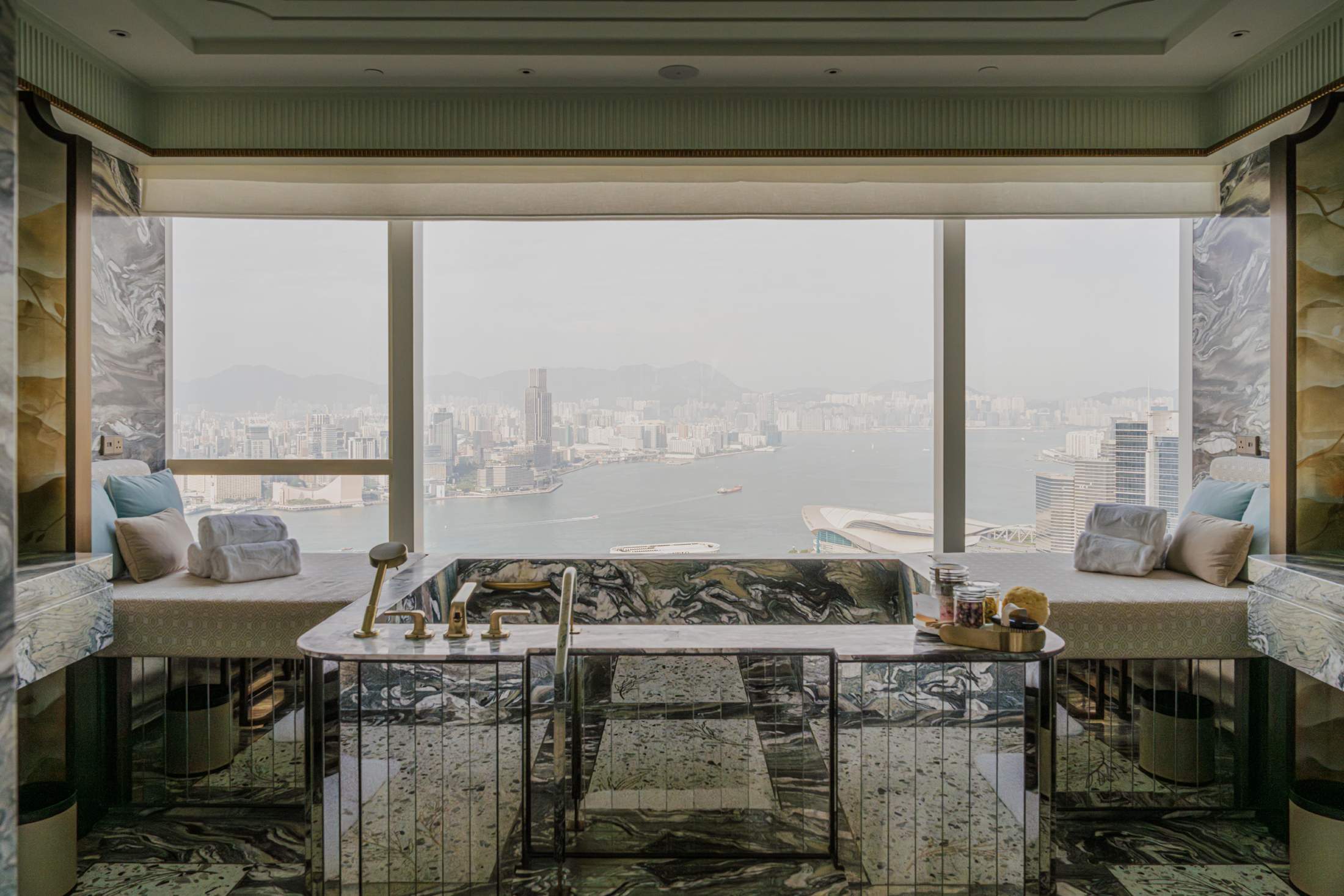

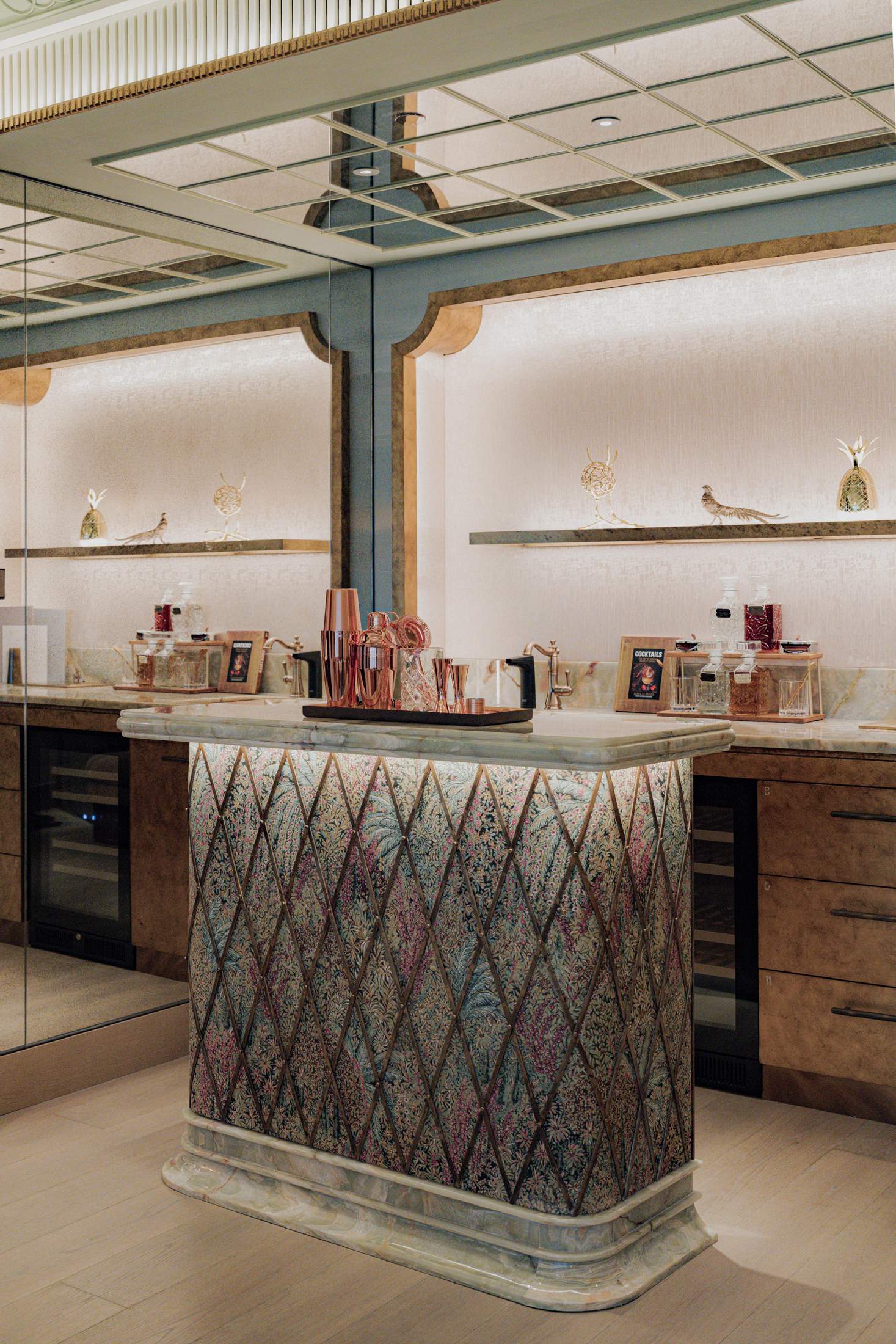
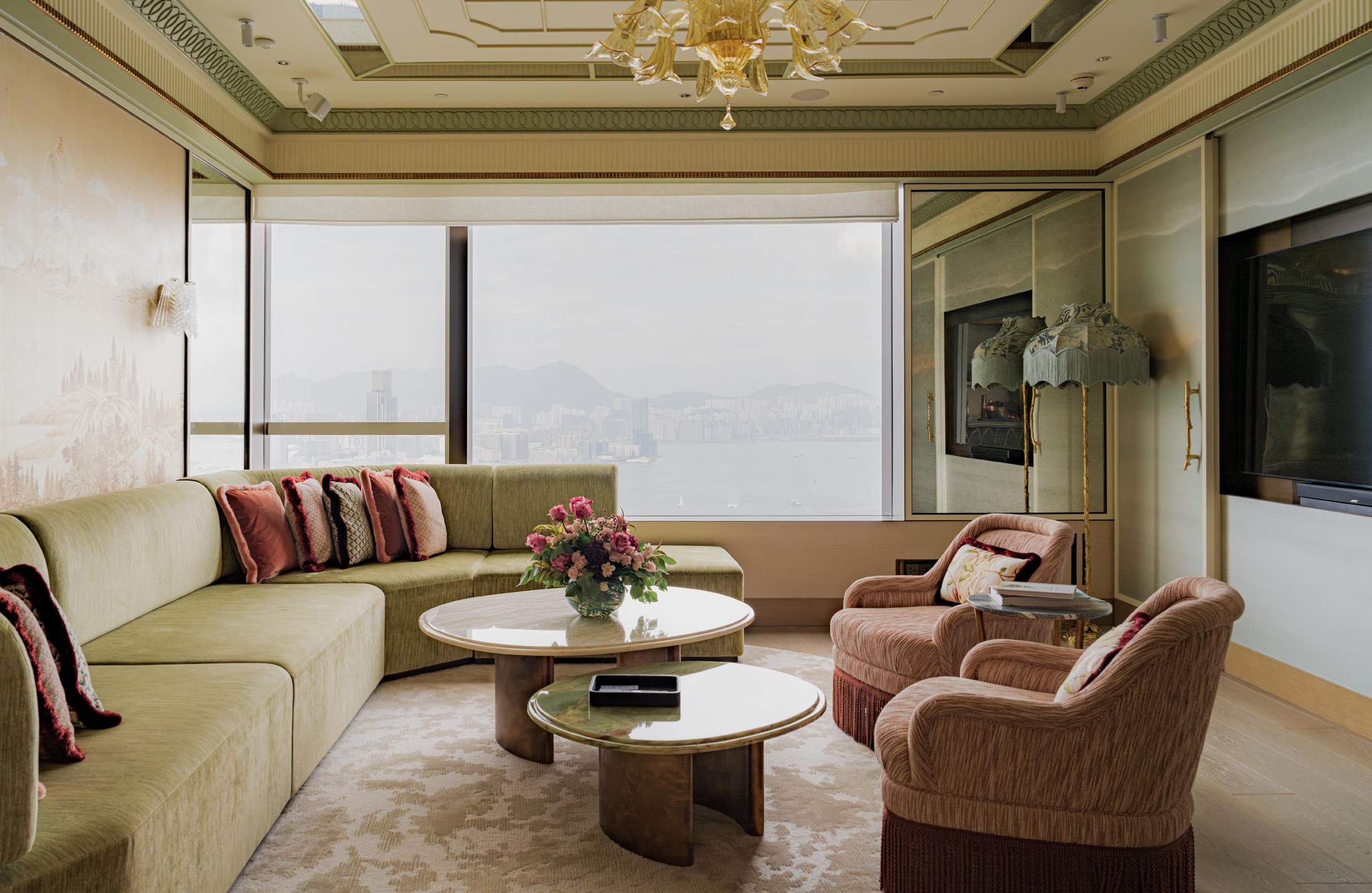
But in Hong Kong, even the most luxurious of spaces must have flexibility built in. Guests can use one of the two bedrooms as a gym, yoga room or office; larger parties can add an adjoining room. The tropical wallpaper in the private dining area can even be covered for brand events or board meetings. As hoteliers across Asia talk about the rise of multi-generational travel and its effect on hotel design, the Shangri-La Suite shows what flexibility can mean on a new level. Now, do you mind? That bathtub is beckoning.
shangri-la.com
11.
nordic charm
Fuglen, Seoul
Oslo coffee shop Fuglen, whose name means “bird” in Norwegian, opened its first overseas outpost in Tokyo in 2012. Given its success, the brand was bound to expand to new shores in Asia at some point. First up is Seoul’s fashionable Sangsu district. Fuglen’s now signature design is in place – vintage furniture, modern reproductions of mid-century Nordic pieces (another part of the Fuglen business) and straw wallpaper from Biri in Norway.
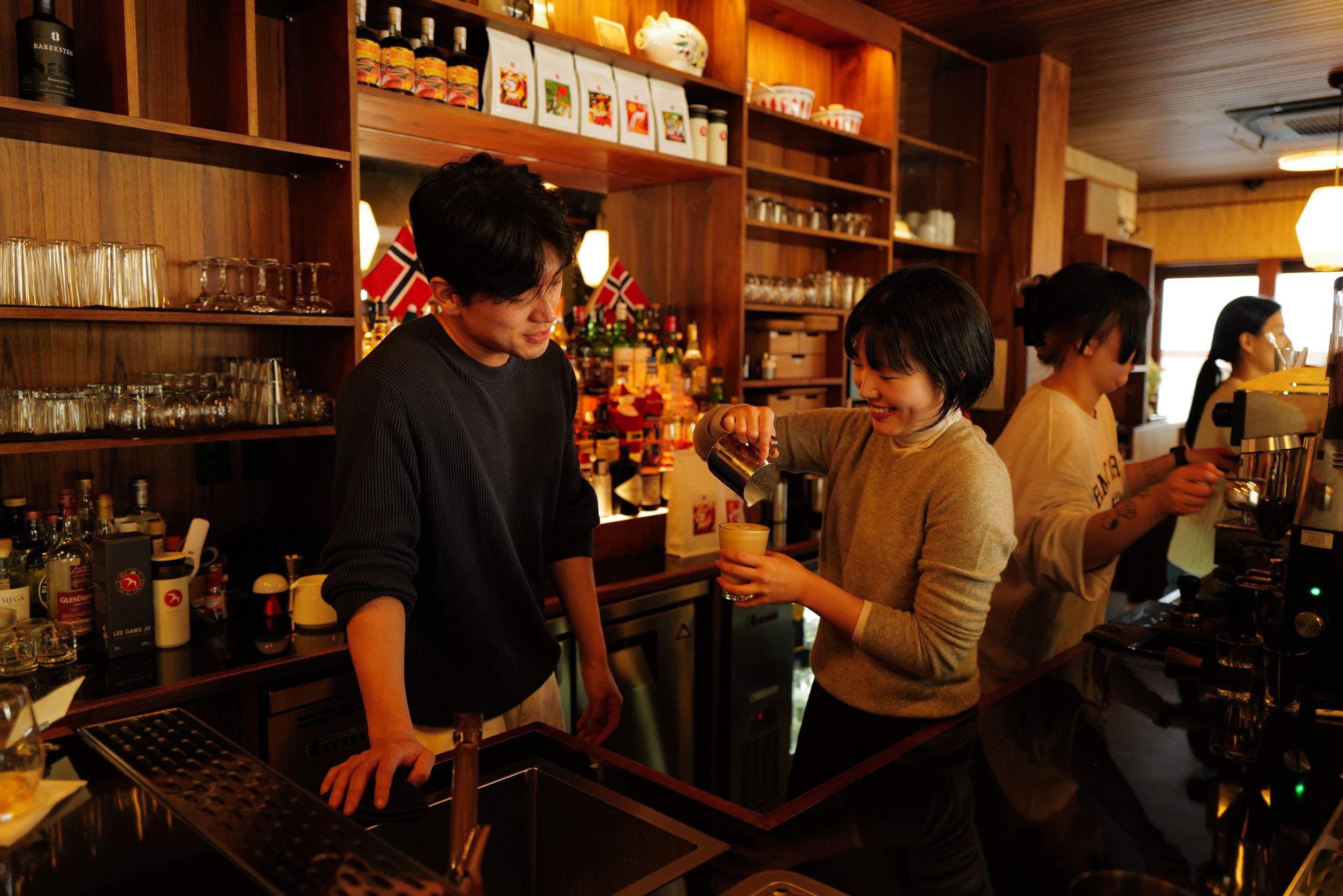
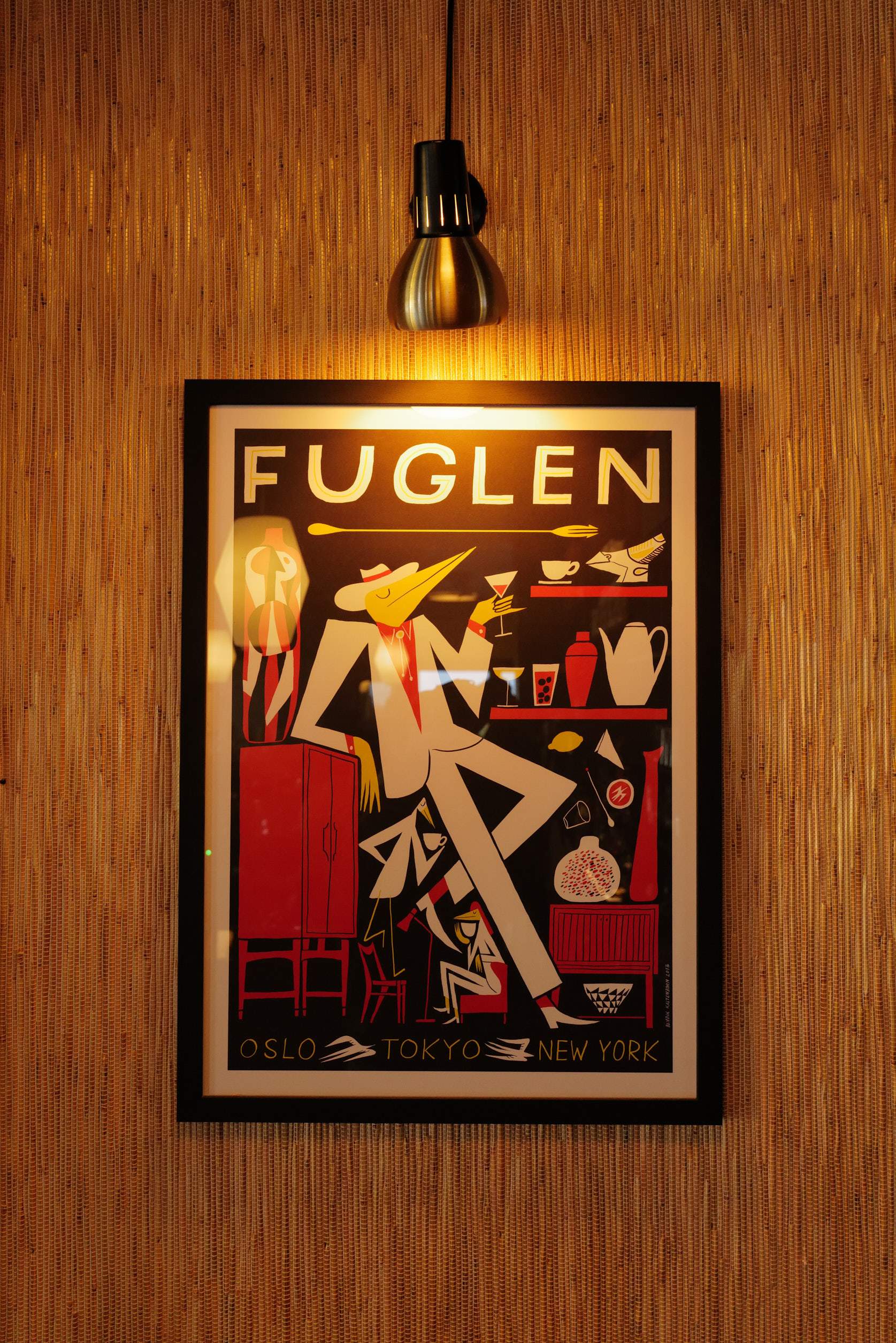
Staff from Fuglen Japan pitched in to help and hundreds of people turned up on the opening day. The company’s ceo, Einar Kleppe Holthe, is a former barista champion and one of the co-founders who took over the original 1963 Fuglen café in Oslo. He says he has been fielding offers from across the world. “Seoul was natural as there has been so much interest from South Korea.”
fuglen.no
12.
beach retreat
Sea Sea Hotel, Crescent Head
Sea Sea Hotel is tucked away on a quiet street in Crescent Head, a seaside town about halfway between Sydney and Byron Bay. The 25-room hotel opened in November 2024 as the newest venture from hotelier George Gorrow, formerly of The Slow in Bali. It’s just a few minutes’ walk from two pristine beaches that stretch either side of the town, affording sandy expanses for sunbathers and ideal point breaks for surfers.
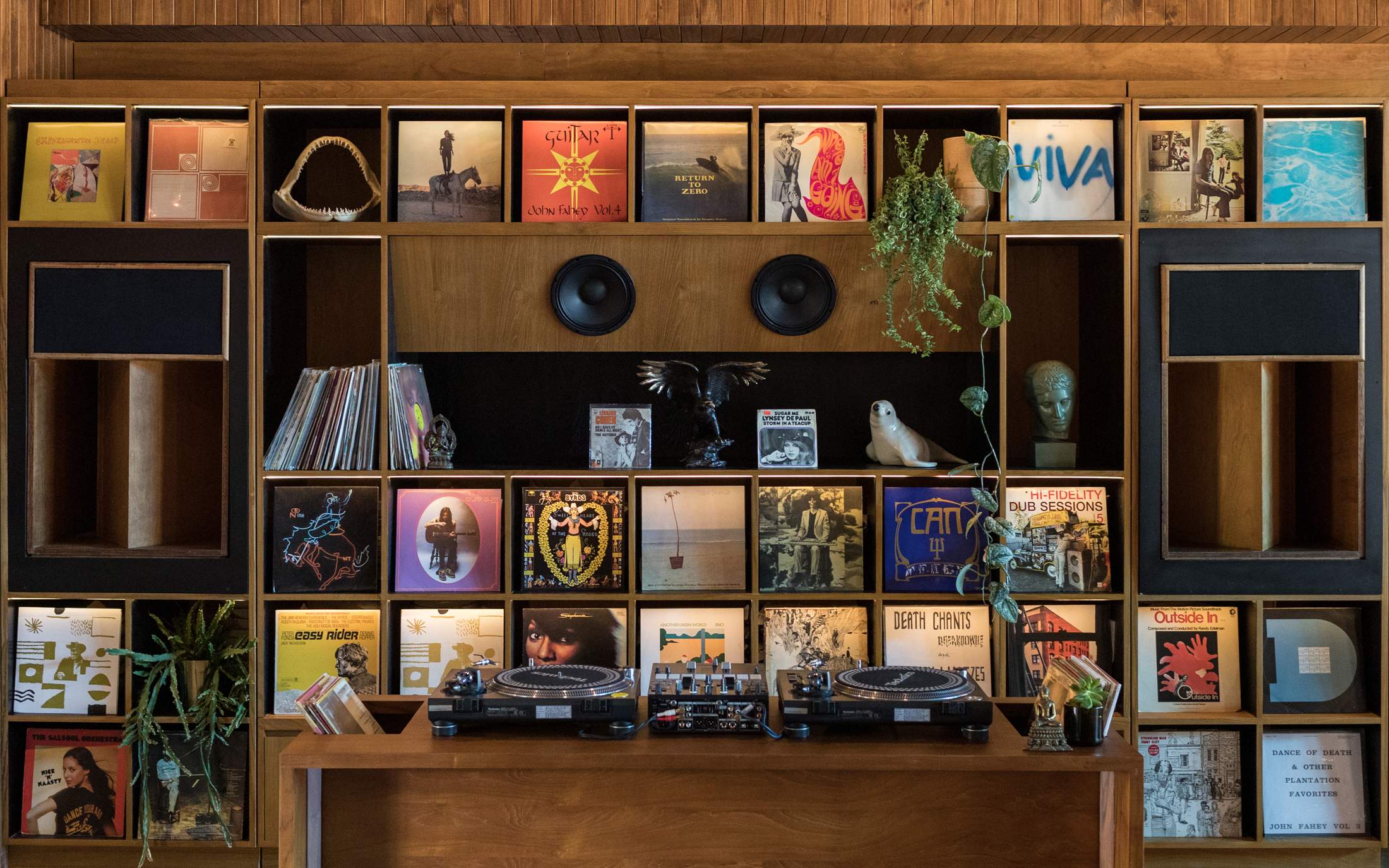
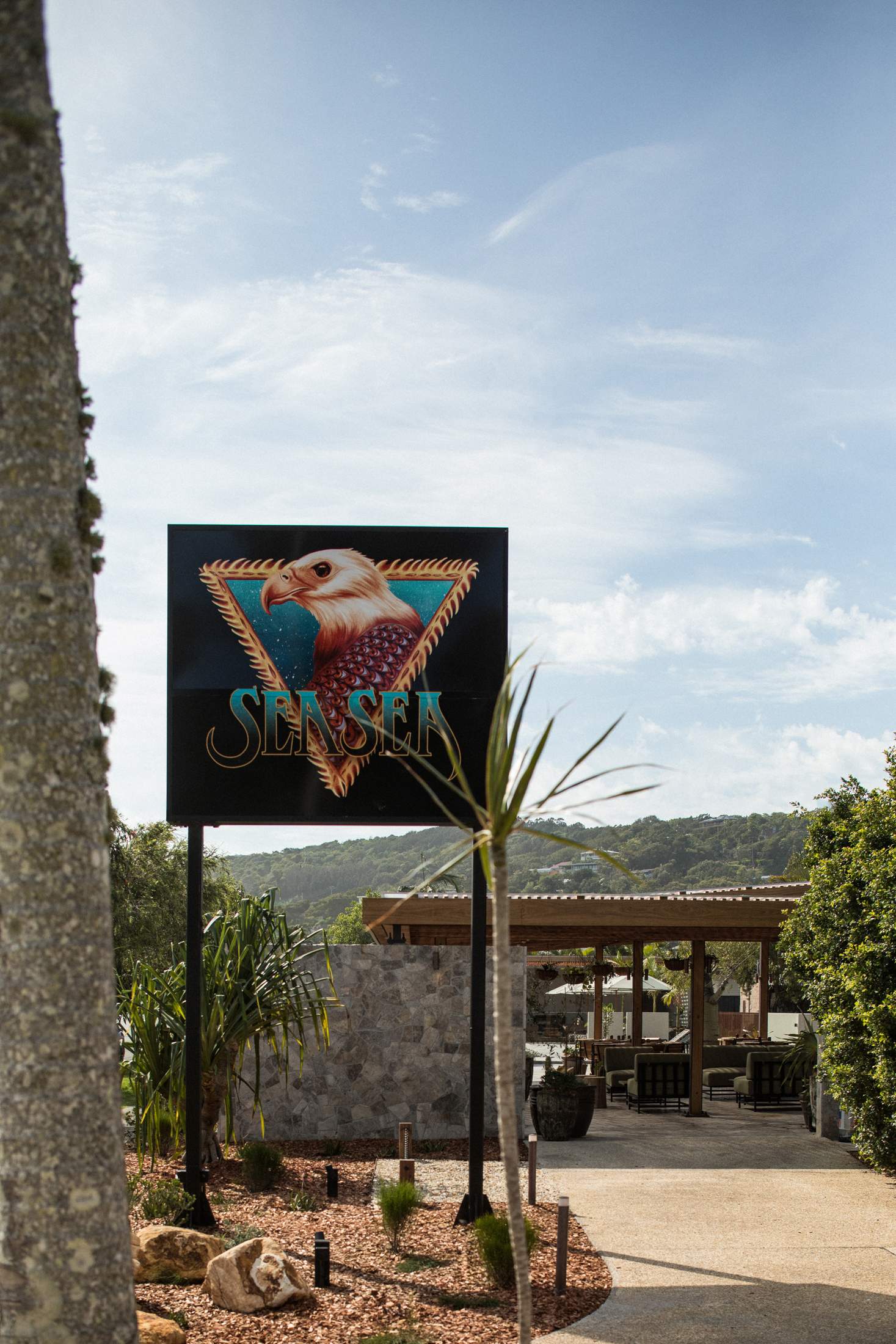
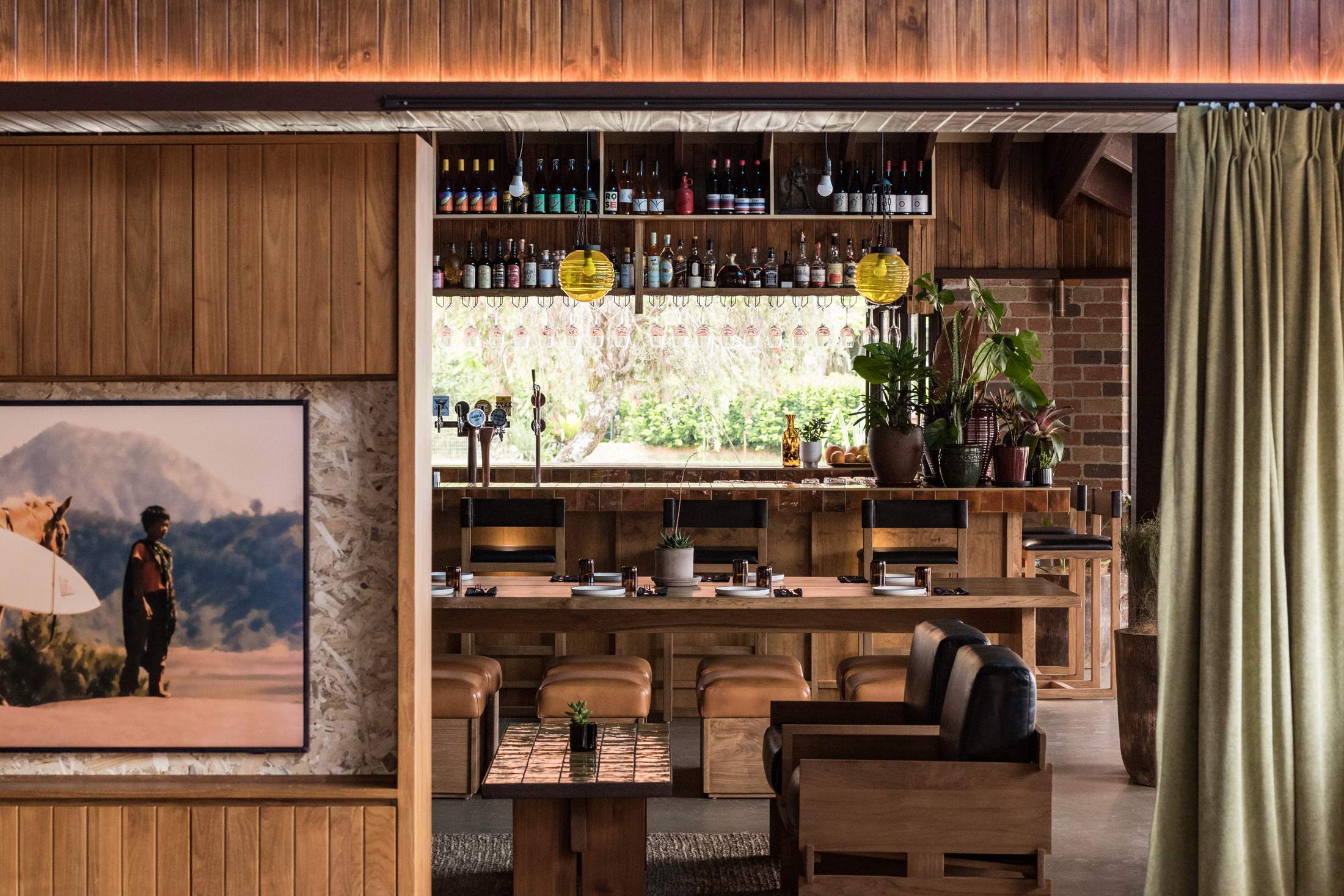
Gorrow decided to open Sea Sea after stumbling across what was then a run-down hotel property from the 1980s, featuring cabins that reminded him of Balinese villas. Gorrow kept the original structures but expanded the pool. He gave the rooms a modern cabin-in-the-woods look, with timber-clad walls. He also added sleek furniture, gauzy curtains and contemporary art. A restaurant serves local seafood and natural wine, and there’s a surf shop, a music lounge and an events space. Guests can rent boards and book surfing lessons at the hotel.
“I grew up on the beach and my dad was a big surfer,” says Gorrow. “This was always one of the spots that we used to pop into on our trips. It’s a cute town with amazing beaches. It still feels pretty untouched.”
seaseahotel.com
13.
leaders of the pack
Travelling companions
At monocle, we know that packing for a trip is about more than merely selecting the appropriate wardrobe. Depending on the destination and your means of travel, different accoutrements become necessary. One item that is indispensable no matter where you’re heading is a camera. We’re fond of the Lomo’Instant Wide Boston by Lomography. The Vienna-based company produced this instant camera with lens attachments so that users can have the flexibility offered by smartphones and digital cameras while also shooting on instant film.
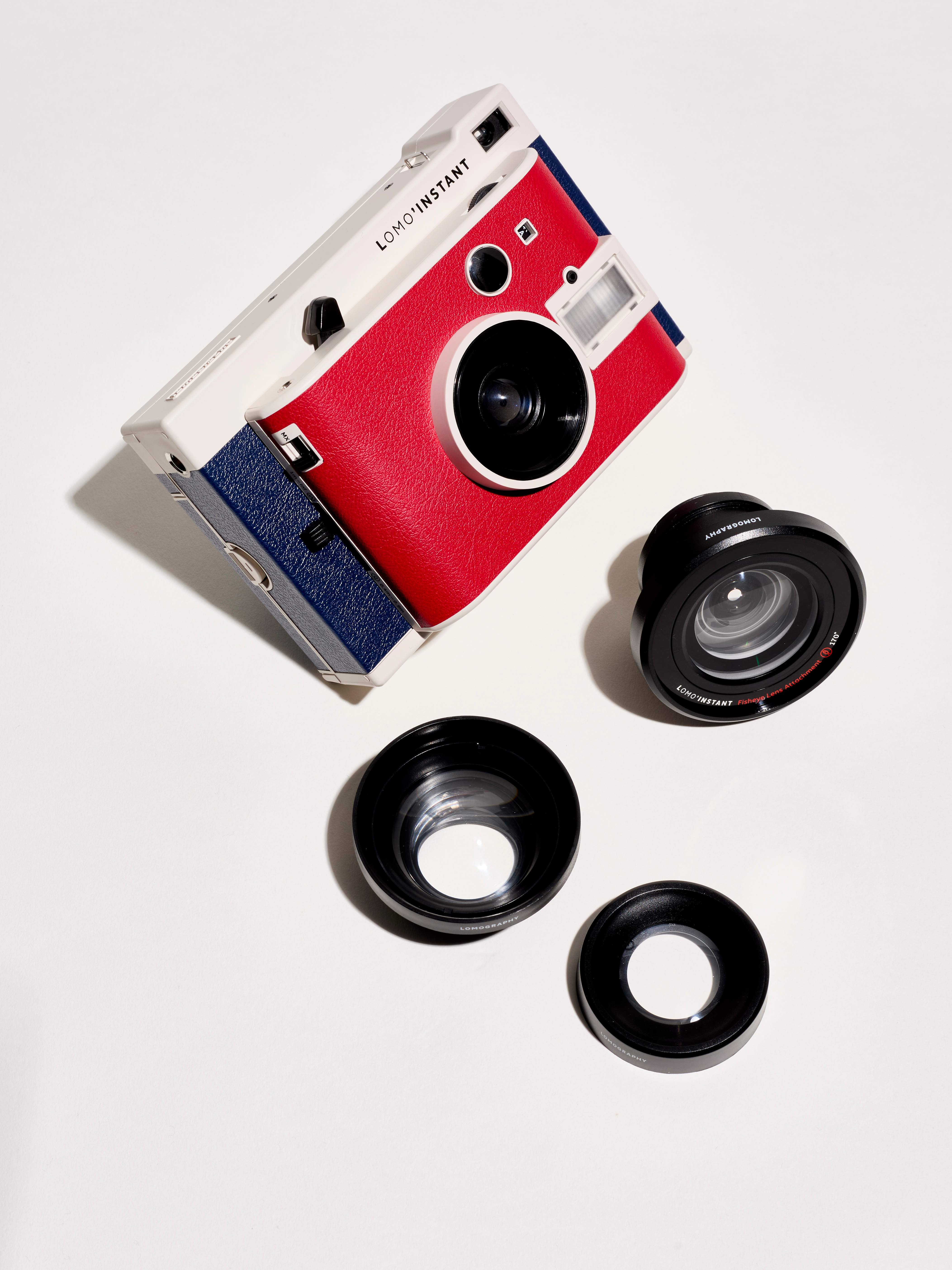
To set the tone on the road, we’re pumping up the volume with Mania by Devialet. The French brand’s first portable speaker combines hi-tech audio with an elegant design. Its spherical form is wrapped in a hardy woven fabric that protects the speaker.
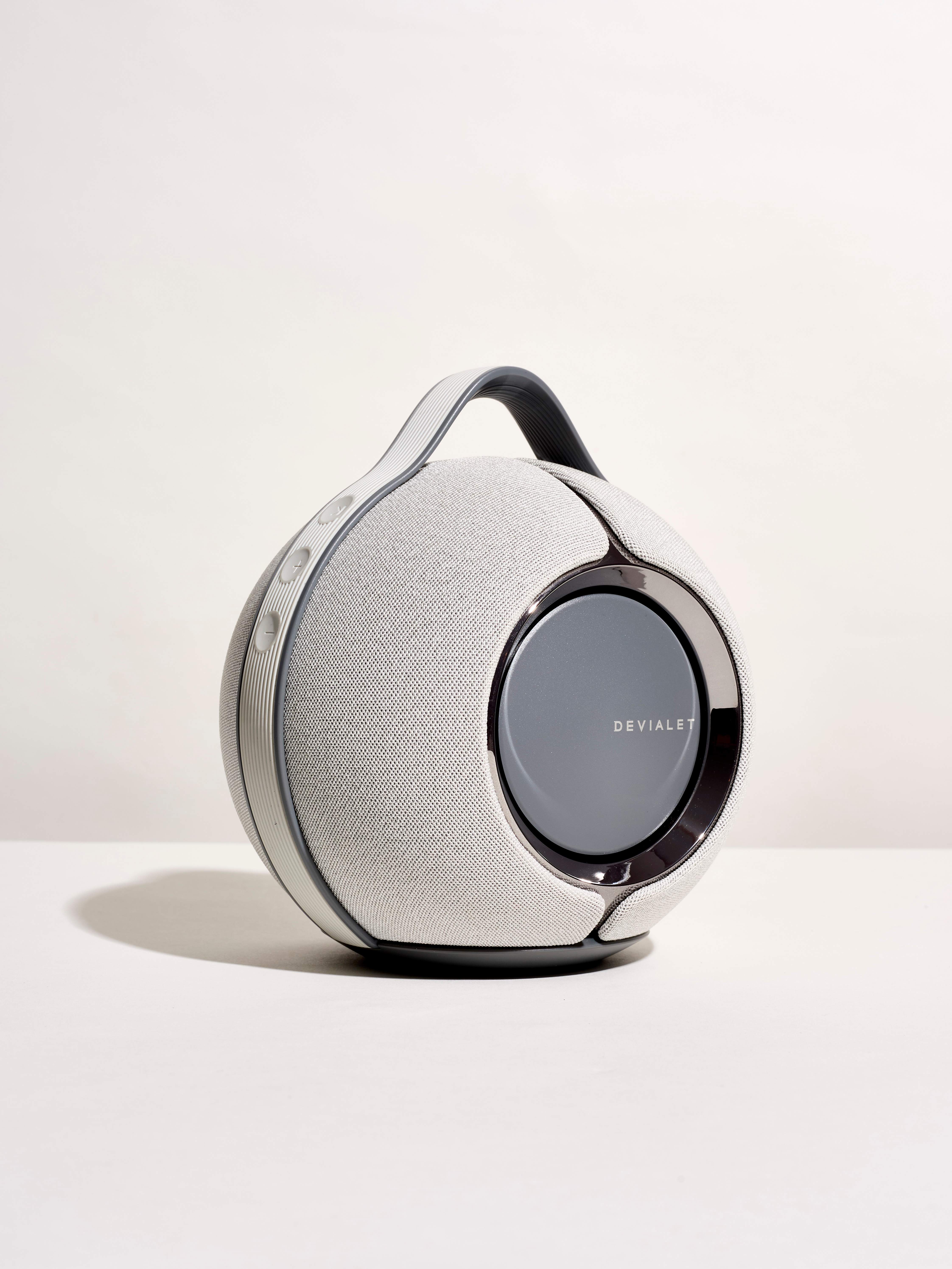
Staying hydrated is essential while travelling too, so pack a cooler. We love the Camping Bucket by Niwaki. This waterproof bag can be folded flat for easy storage and then opened when needed. We’re filling ours with Strong Blonde Golden Ale by La Chouffe, the Belgian brewery whose bottles and graphic design are as tasty as its beverages.
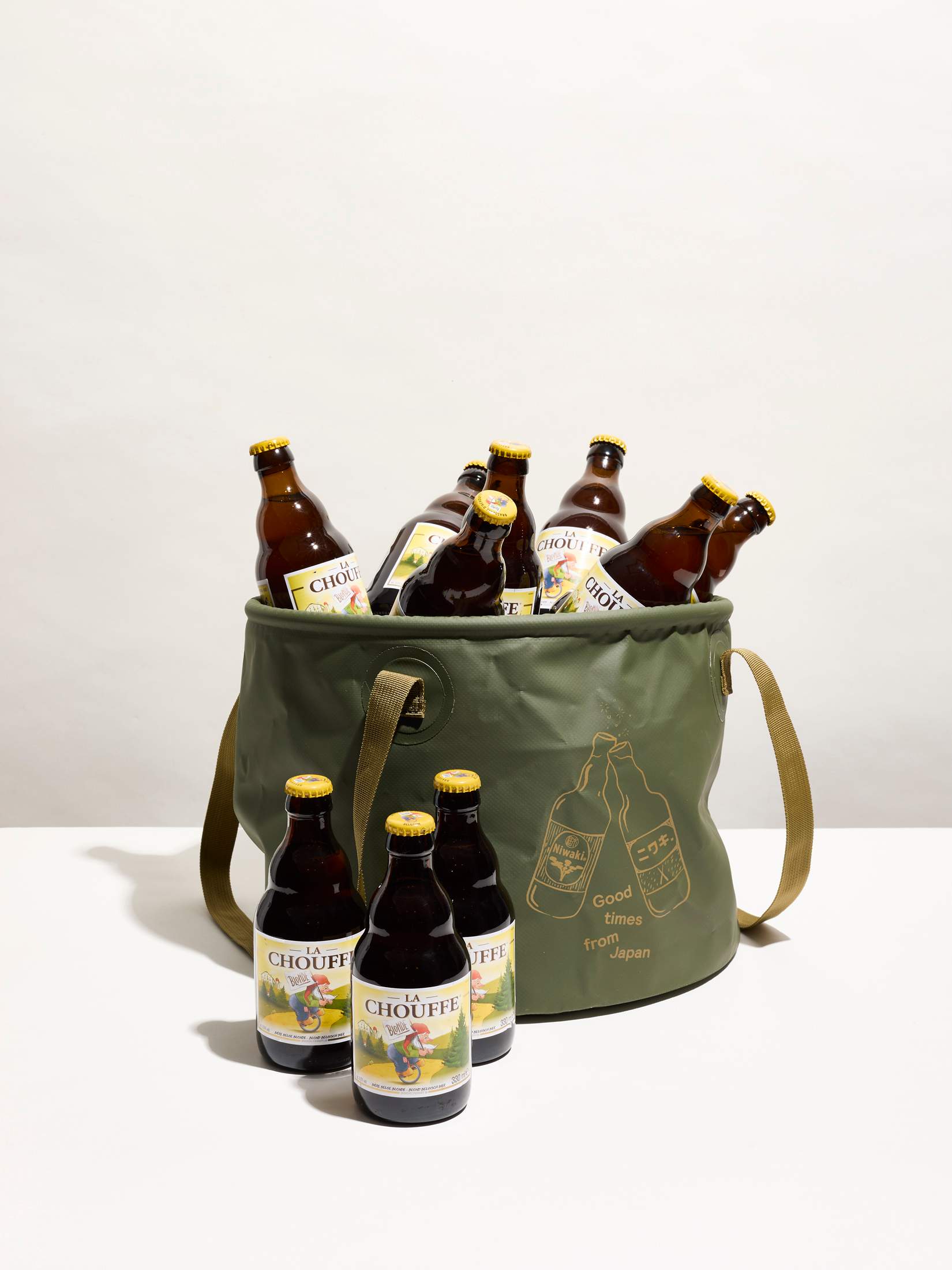
14.
grand ideas
The Manner, New York
The interiors of mid-century Italy were unapologetically grand, intricate and brimming with bravura – a world away from what you’ll find at most modern hotel makeovers in the US. A notable exception is The Manner in New York, the latest addition to The Standard International family. When the group’s chief design officer, Verena Haller, set out to find someone to reimagine the property, she enlisted Milan-based Hannes Peer, renowned for his sumptuous residential projects that epitomise Italian grandezza. This establishment, set on Soho’s Thompson Street, eschews the standard, chunky check-in desk in favour of a striking tableau of marble, brass, leather and terracotta, channelling Milan’s most opulent entryways.
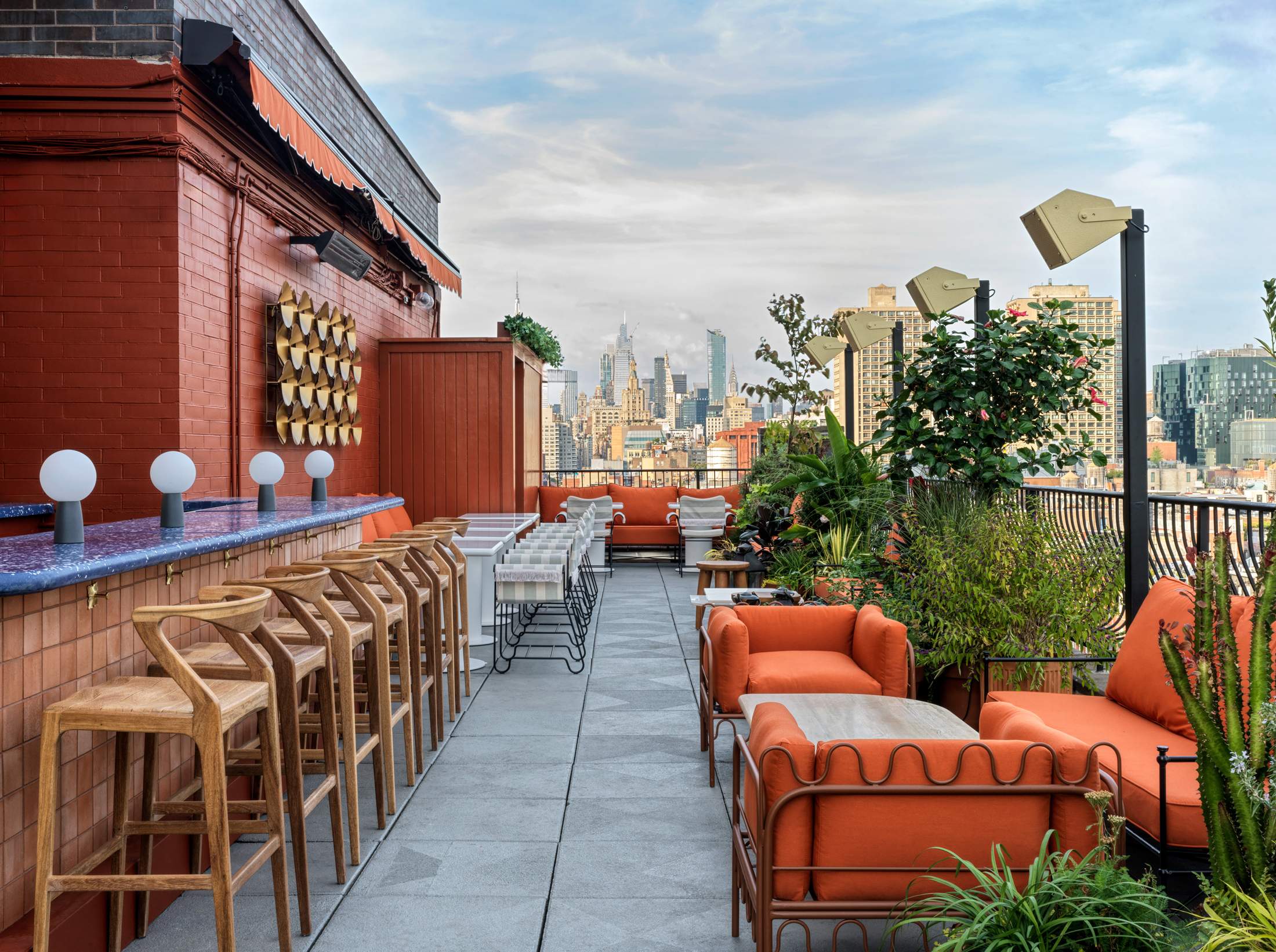
Ascending a travertine staircase, guests are greeted by The Apartment, a living-room-style retreat with a cinematic feel, Pompeian red walls, a mahogany divider and handcrafted ceramic columns by sculptor Ben Medansky. This decadence extends to The Manner’s 97 guest rooms (including 10 suites and one penthouse), where every detail is a tribute to Italianate splendour. Lipstick-red lacquered headboards, floor-to-ceiling mirrors and glossy dark-wood veneers amplify every room’s inherent drama.
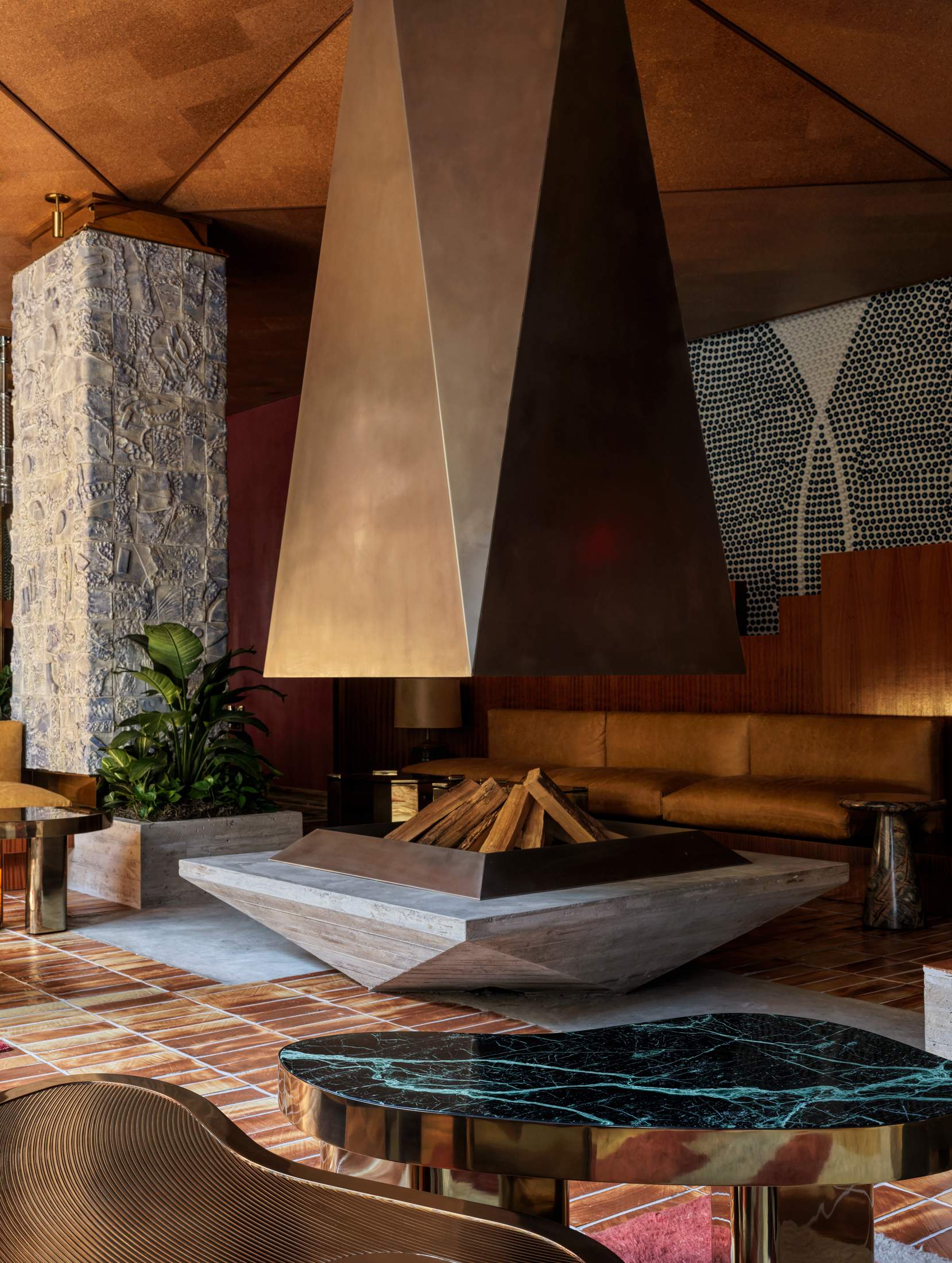
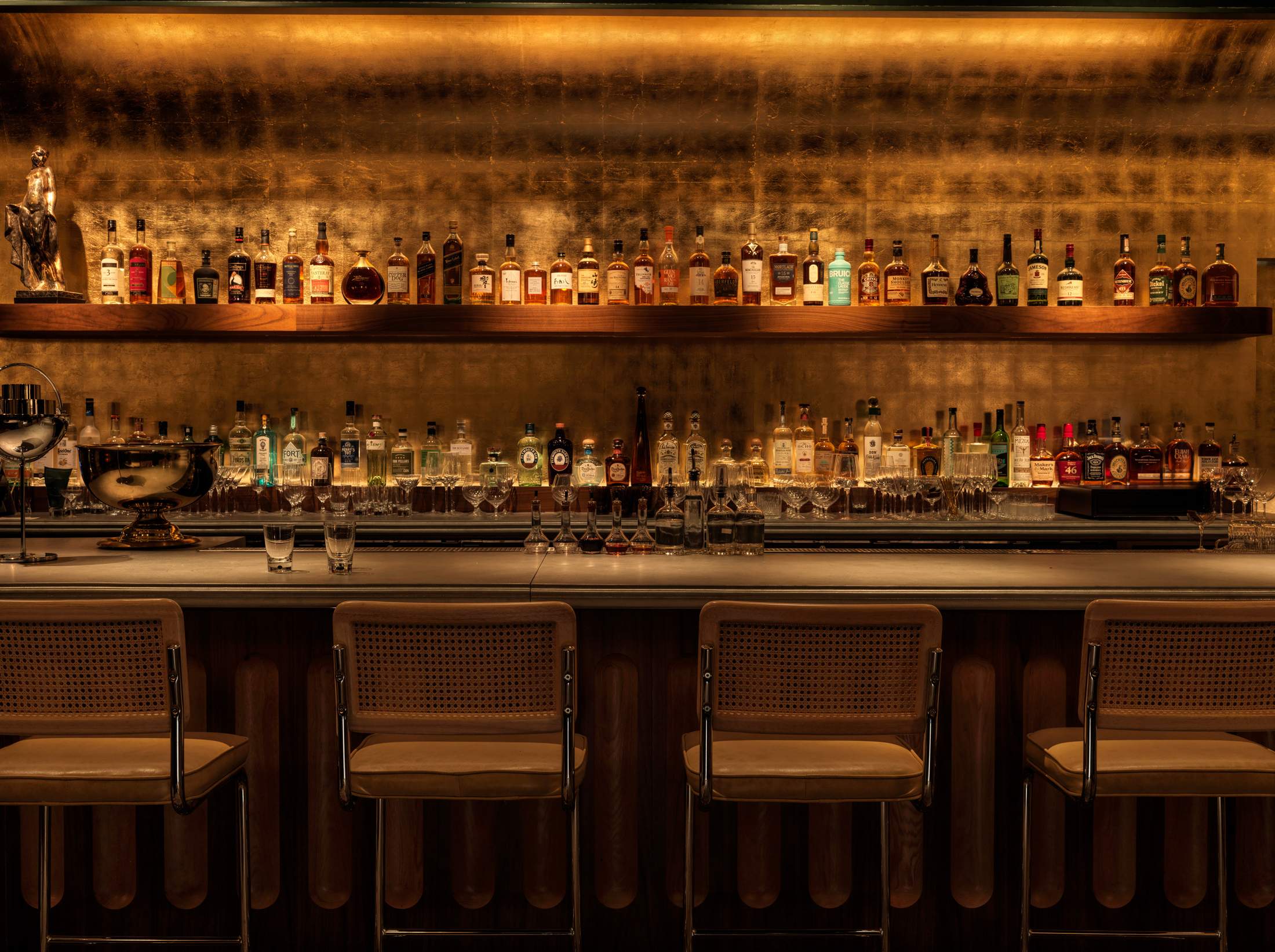
Dining is equally indulgent. The Otter, The Manner’s seafood-focused restaurant, offers dishes ranging from classic shrimp cocktails to a more modern swordfish steak frites. Sloane’s, a discreet speakeasy, serves vintage spirits in a setting that is as refined as its menu. And come spring, a rooftop space will make its debut. You know where to find us.
themanner.com
15.
full of beans
Die Cafetière, Vienna
German-born Peggy Strobel spent many years in the Netherlands before moving to Vienna in 2007. There she managed Mraz & Sohn, the Michelin-starred restaurant of her husband, Markus Mraz, then stepped back to start a family. Harbouring an ambition to open a place of her own, she took a hospitality course in Innsbruck. After the coronavirus lockdowns, a friend told her that the Naber Café in the first district, run by the family-owned Naber Roastery, was looking for a new owner. Strobel didn’t think twice.
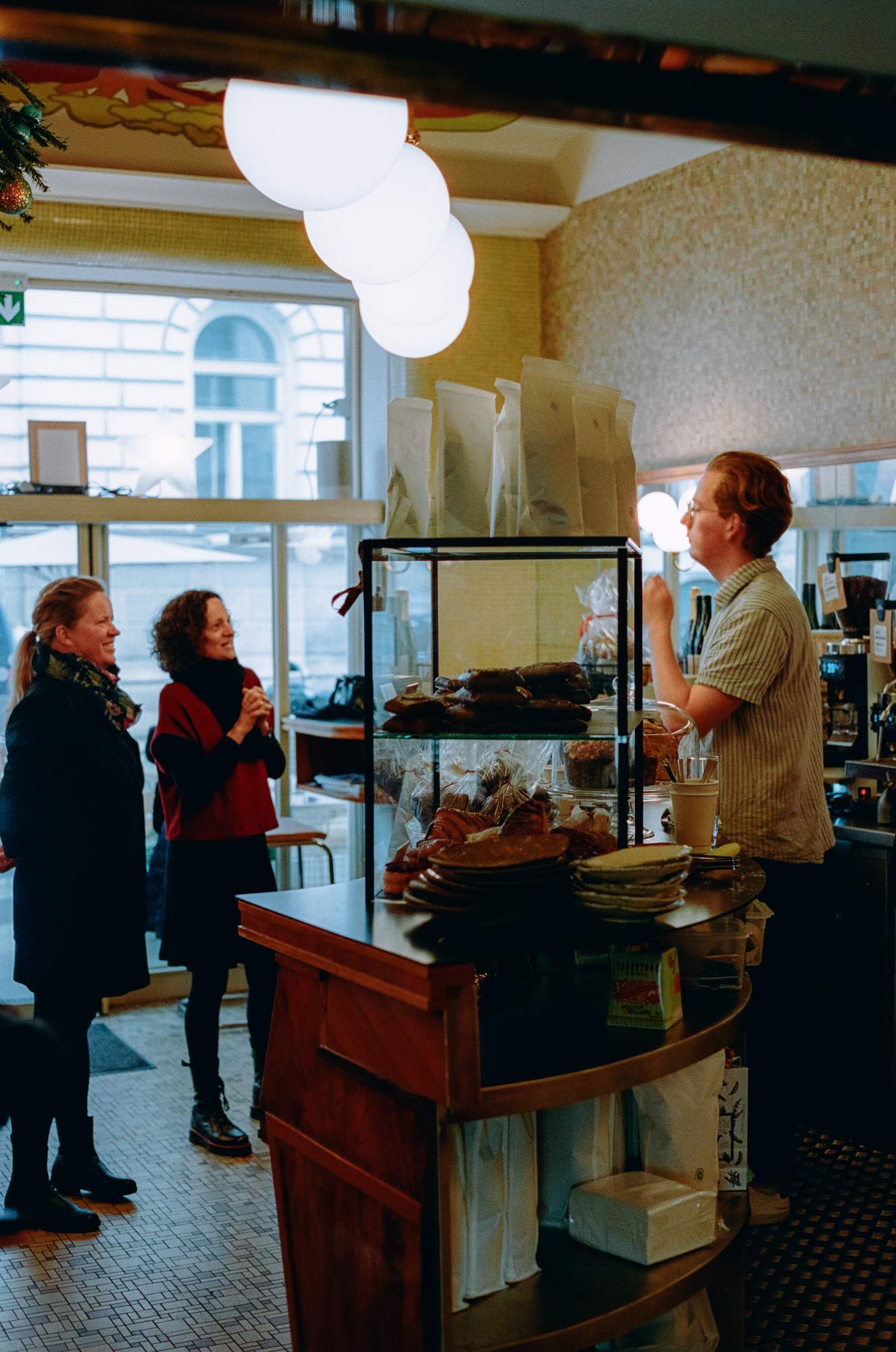
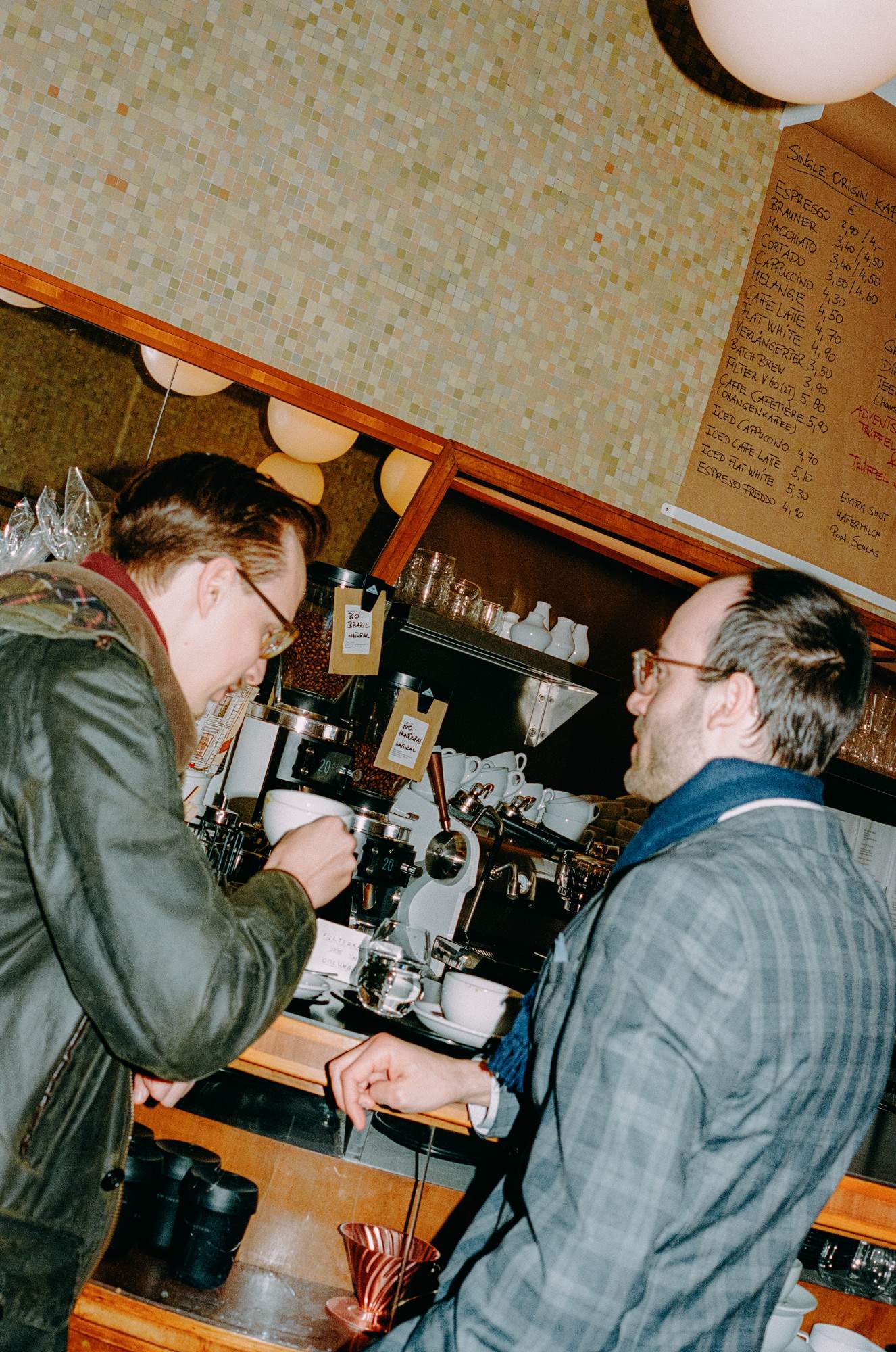
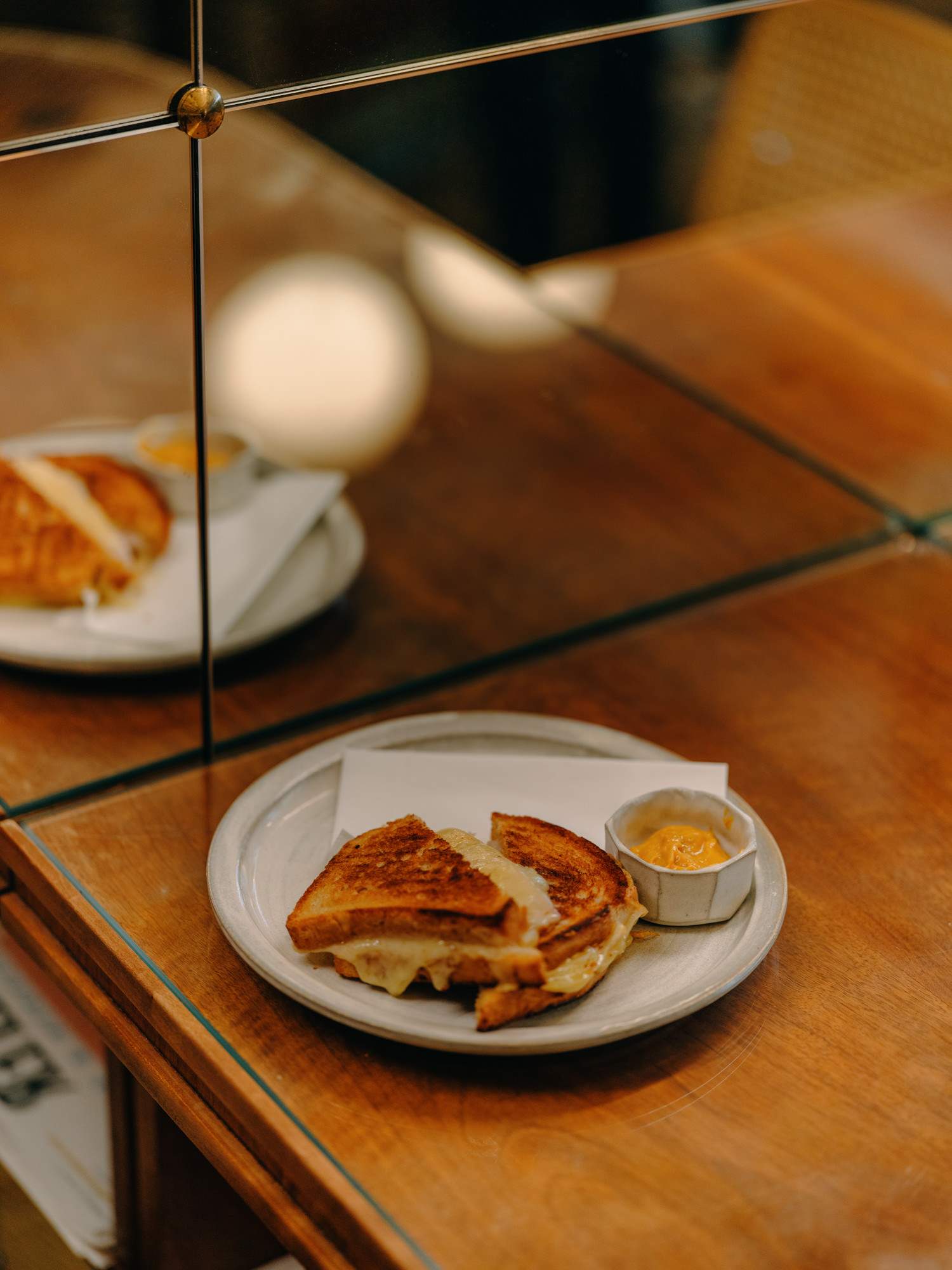
Strobel has preserved the décor from the 1960s, an era when many espresso joints of this kind sprang up across Vienna. The back of the building now doubles as a showroom for Percy Thonet, scion of the chair-making Thonet family, and Anna Prinzhorn, the creative force behind furniture brand One for Hundred. Alongside pastries, Die Cafetière serves ham-and-cheese toasties called Karl-Heinz, named after Strobel’s late father-in-law who, says Strobel, made them best. “My motto is ‘With and without tradition’,” she says. There’s a stimulating thought to round-out our Wishlist – not all hospitality highpoints involve completely changing the recipe and starting from scratch.
diecafetiere.wien


